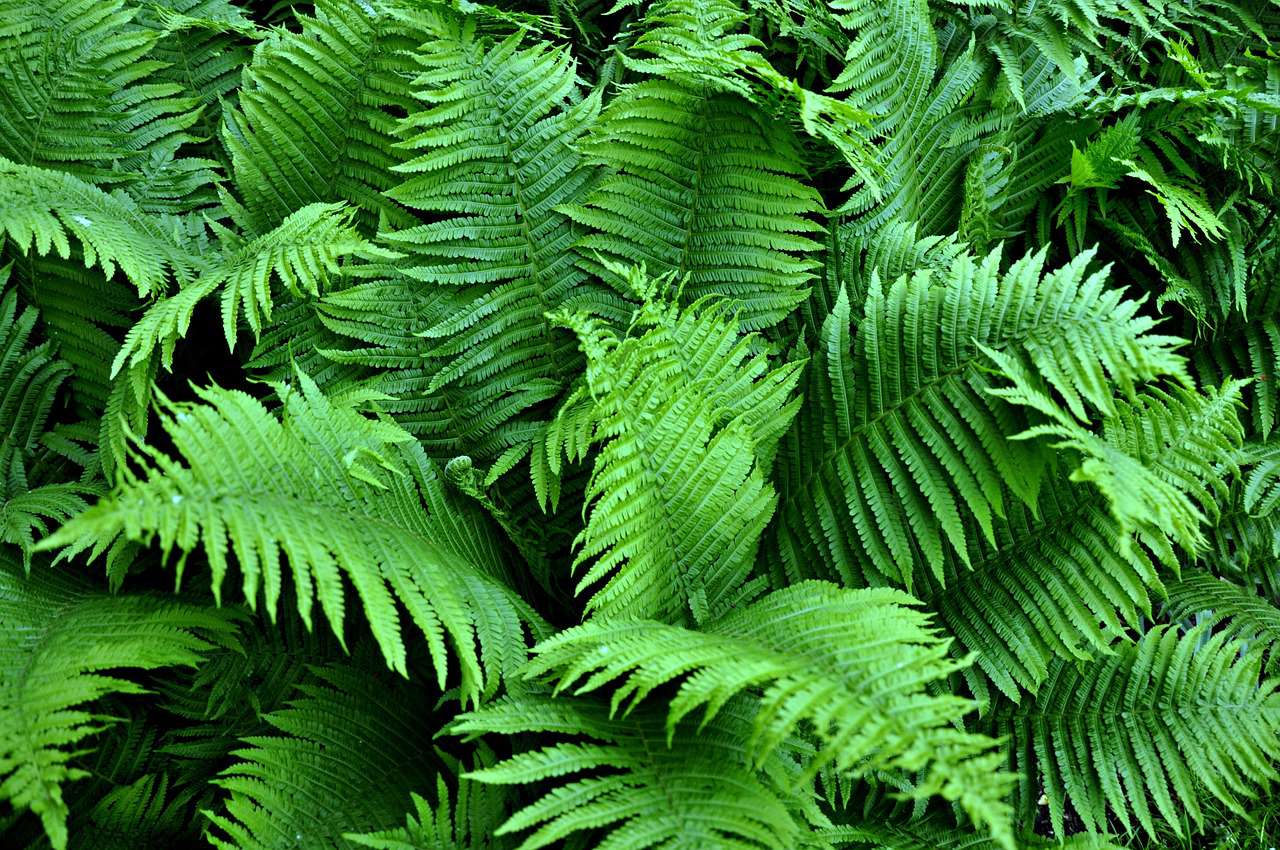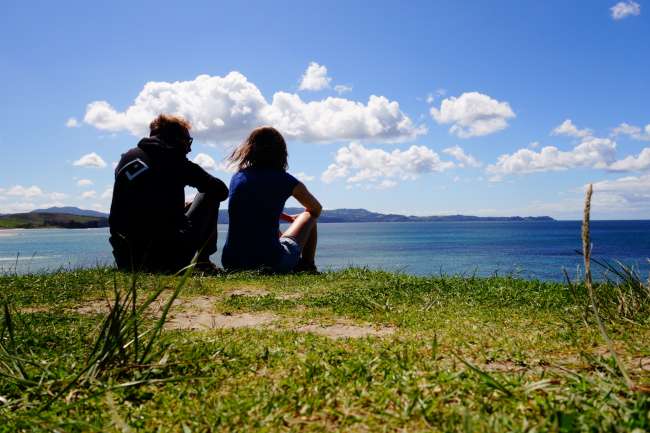Invercargill & living fossils
Ishicilelwe: 31.01.2017
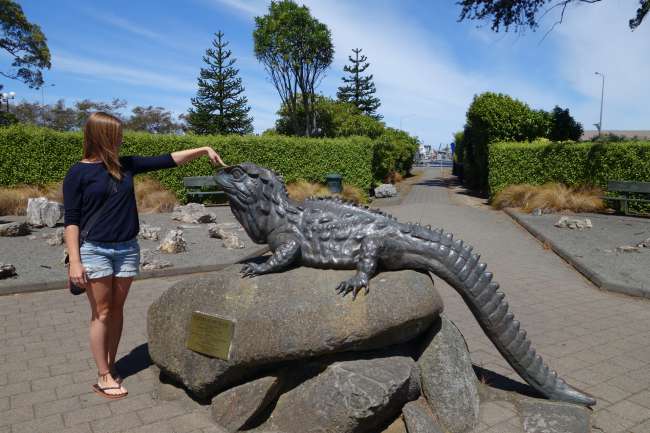
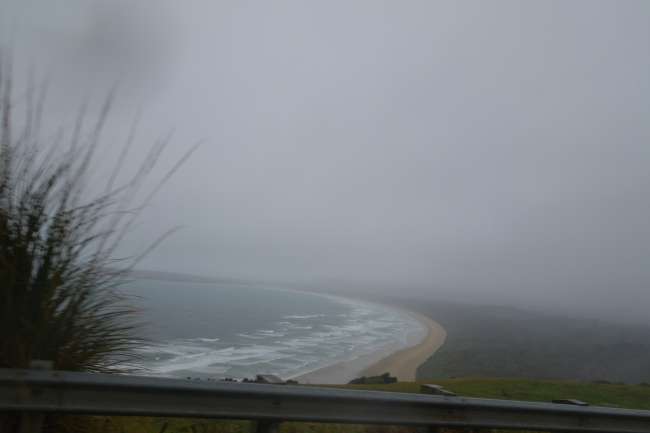

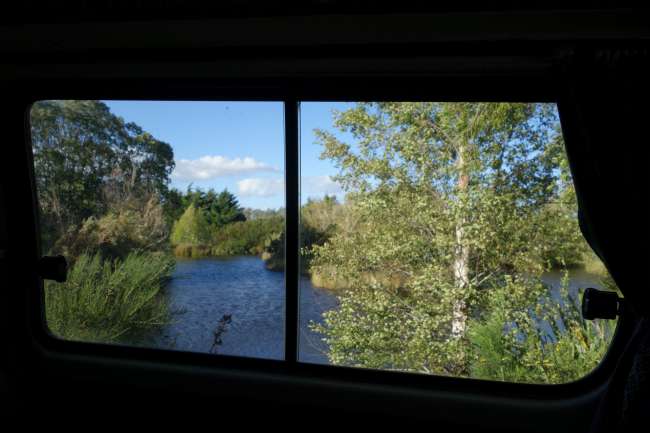
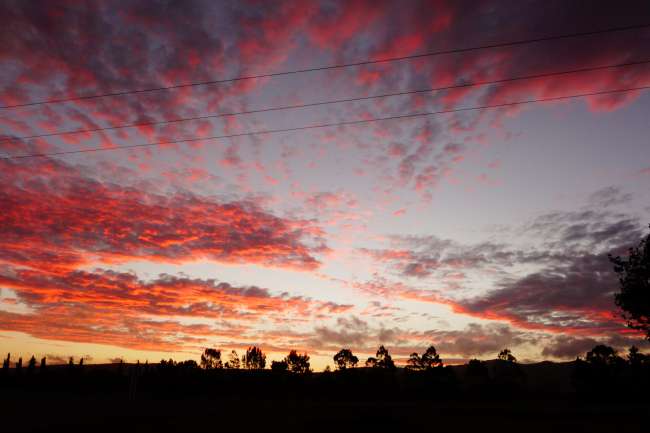
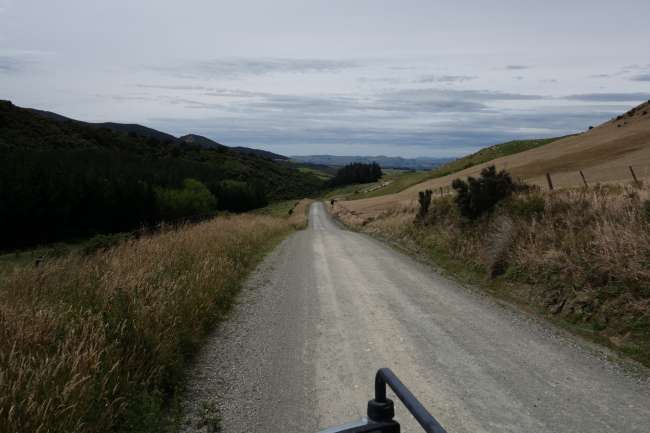
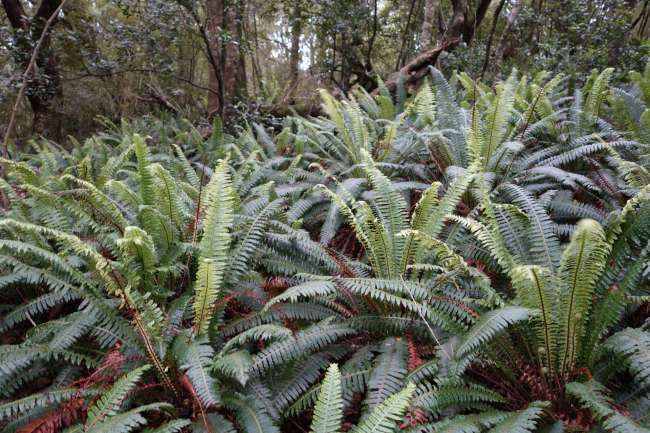
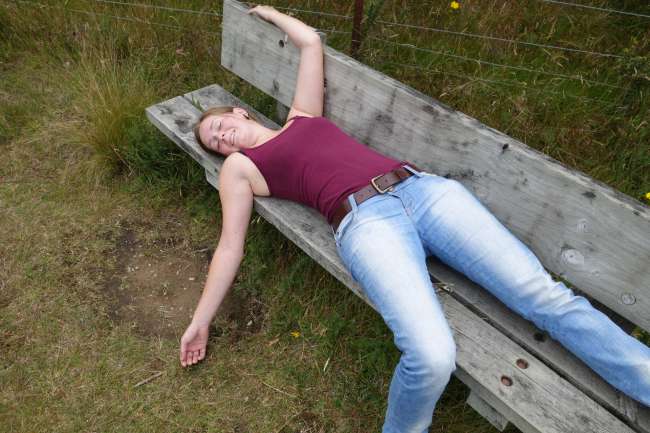

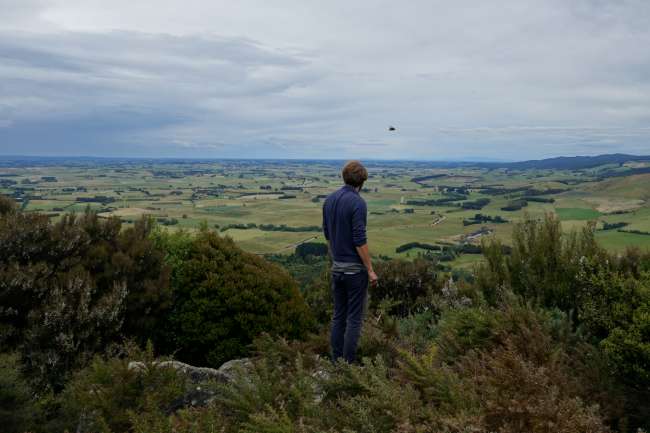

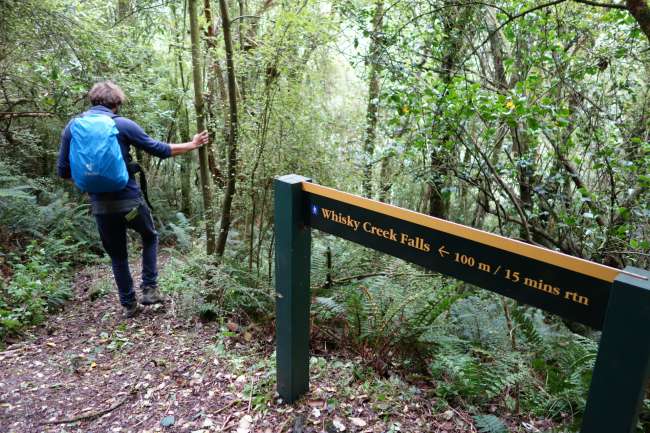
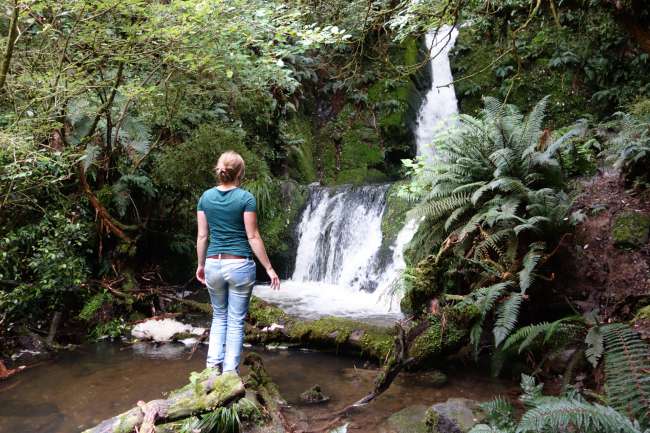
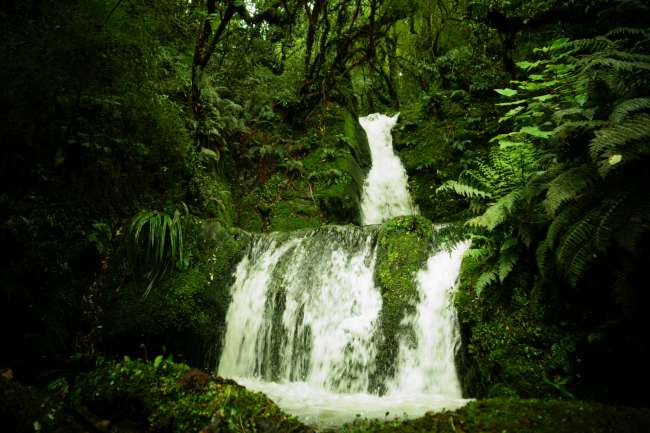
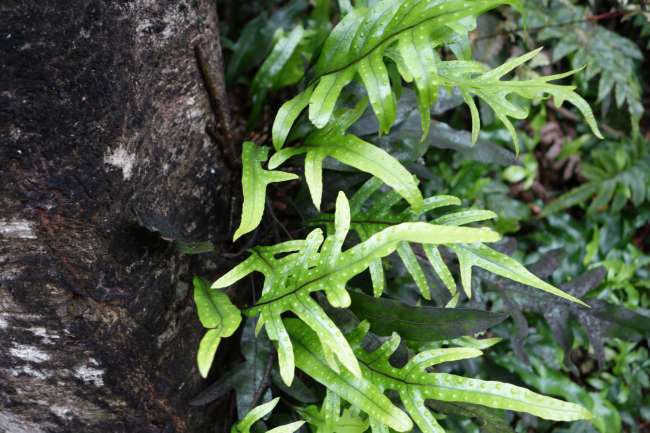
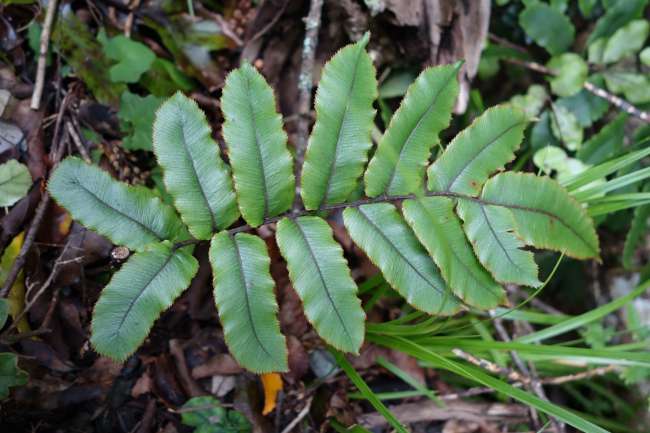
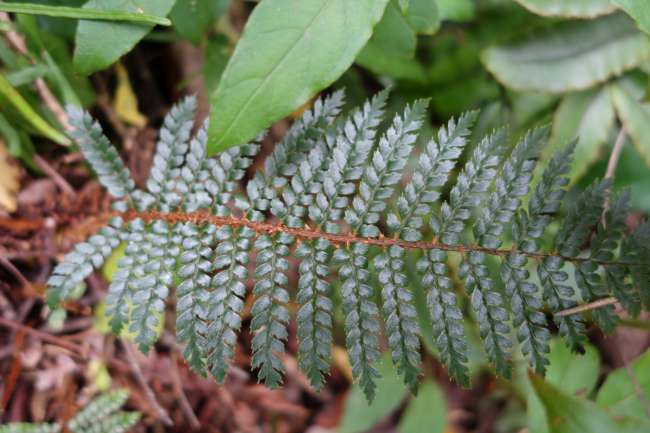
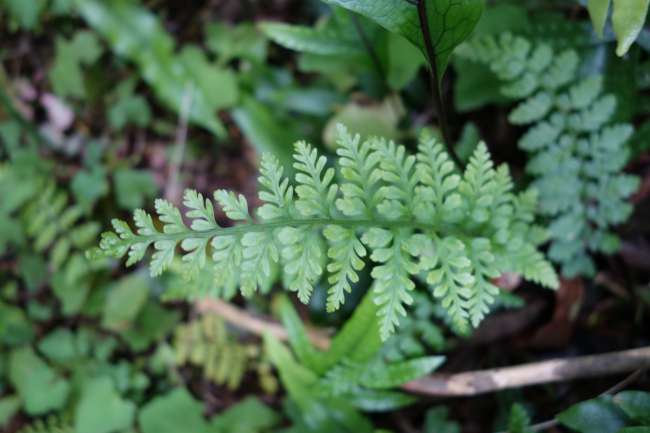
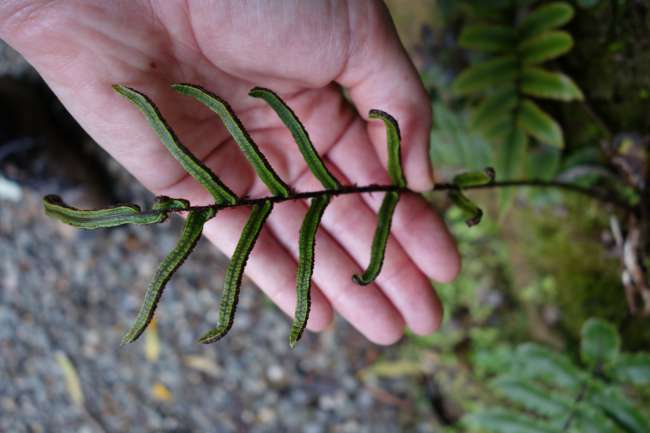
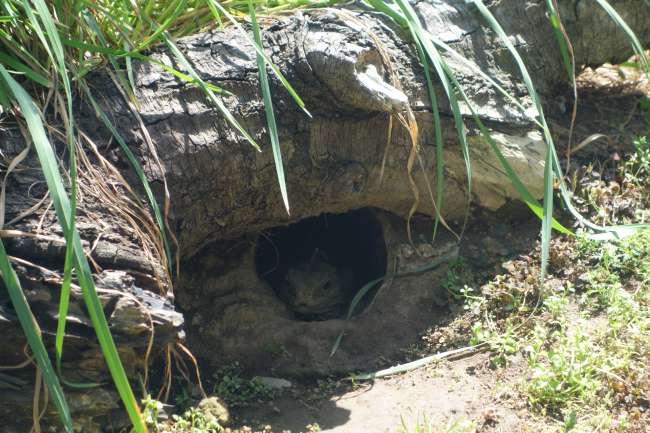
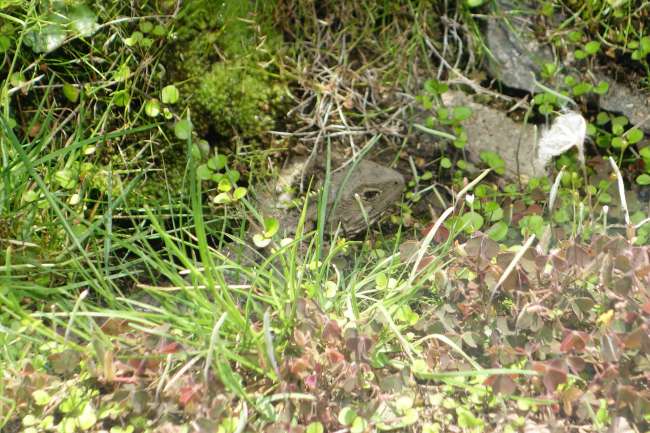
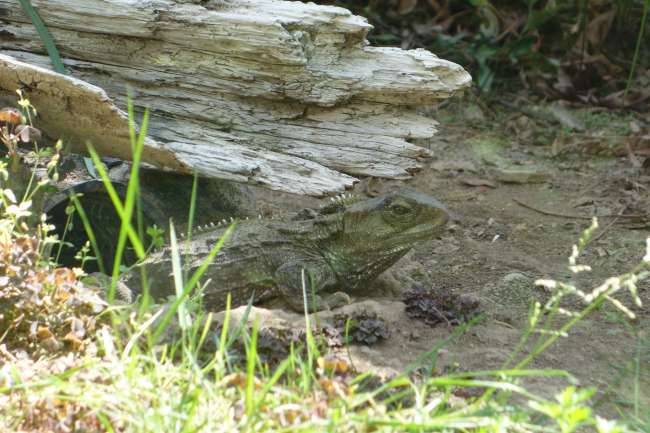
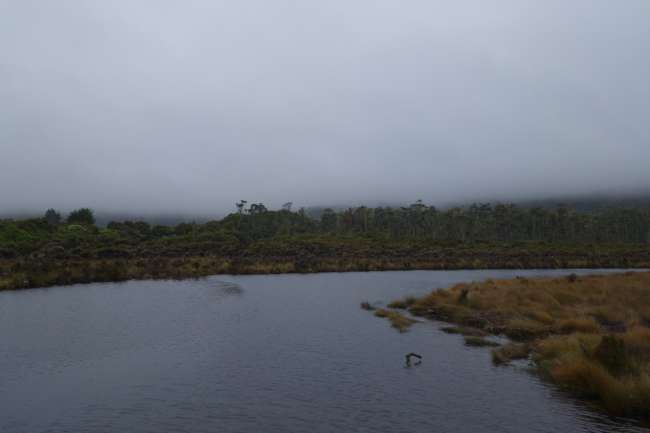
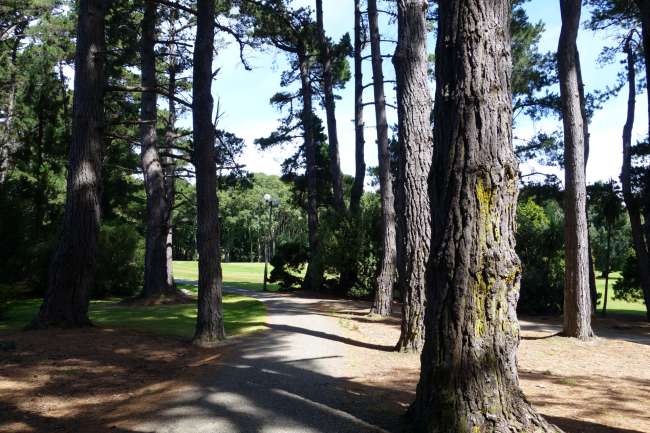
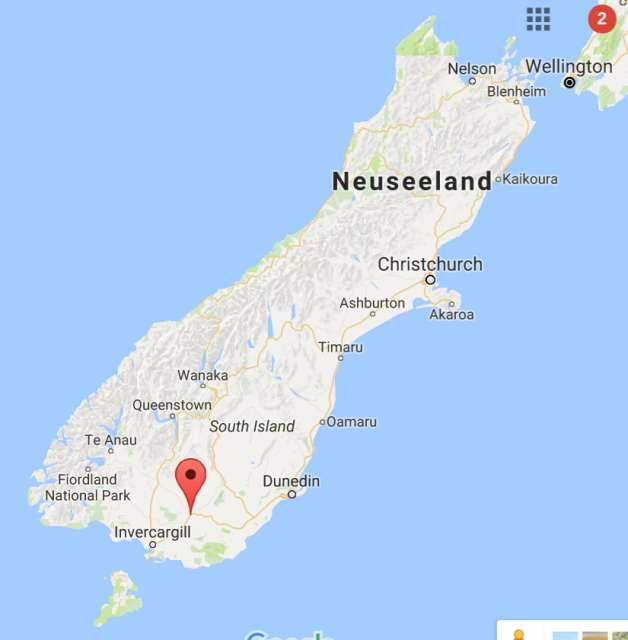
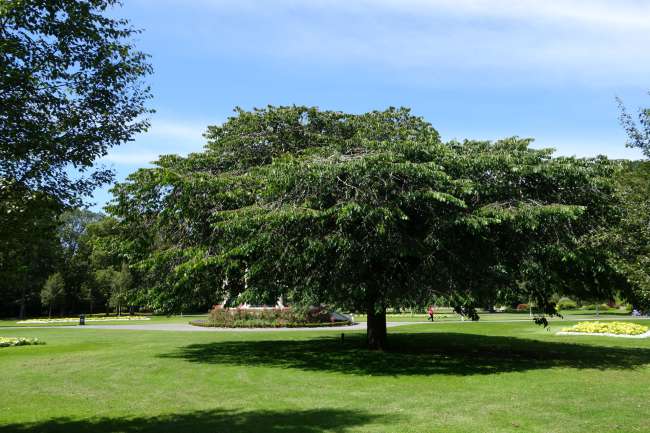
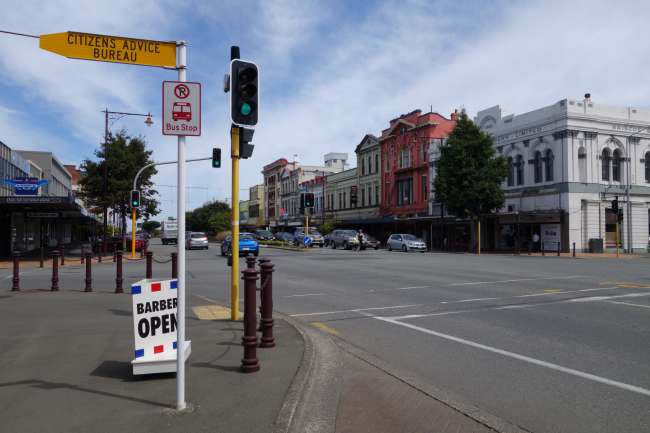
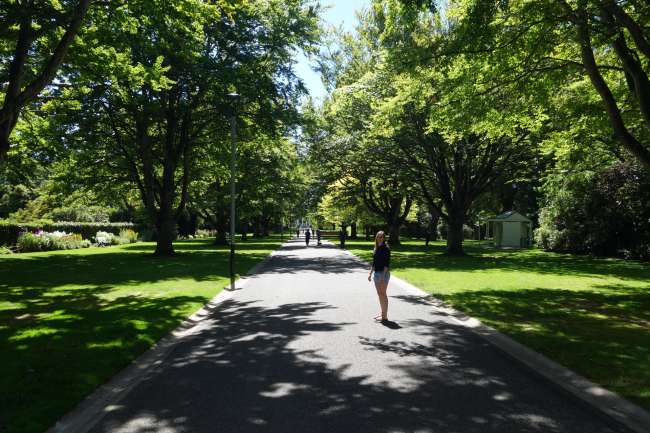
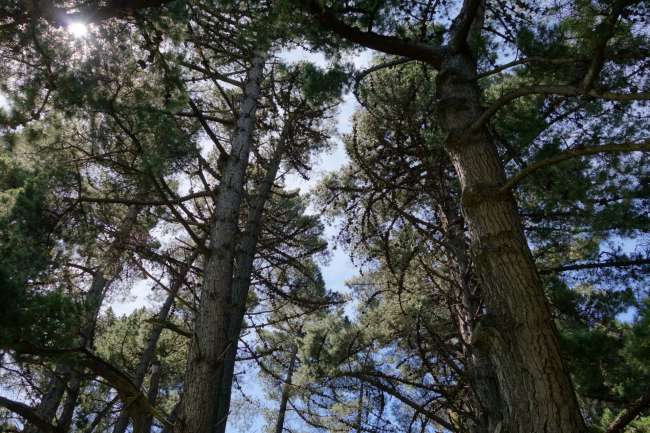
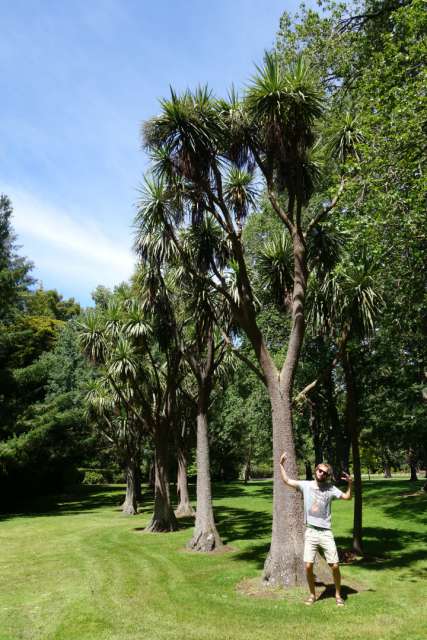
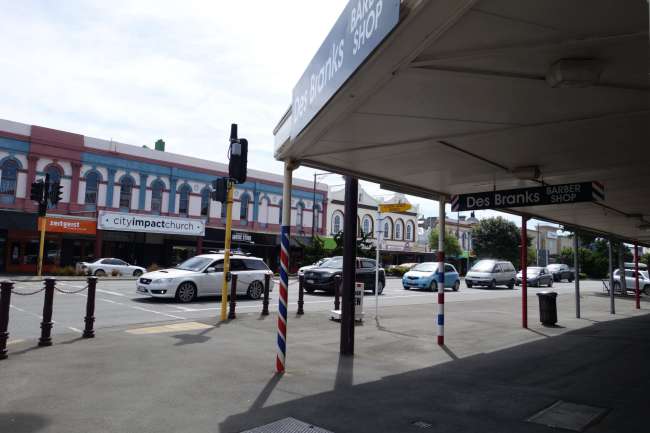
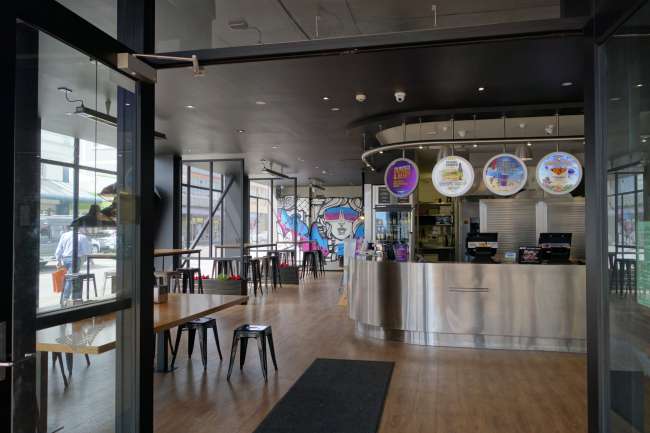
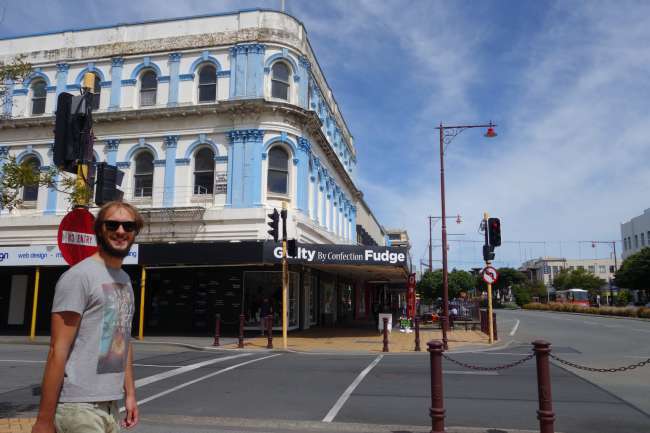
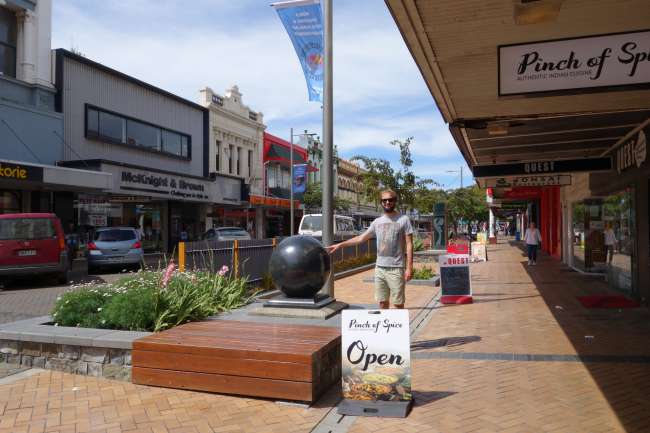

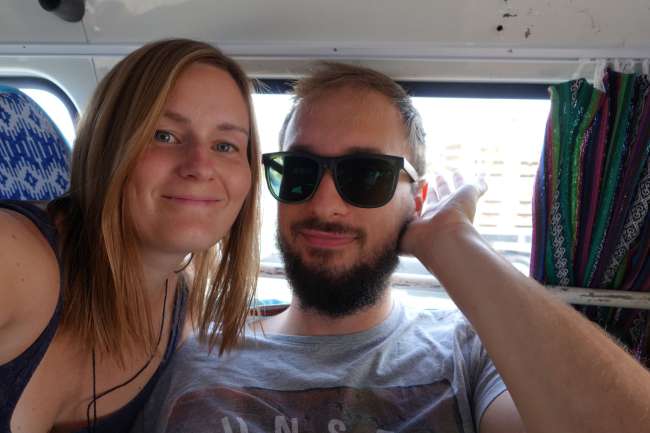
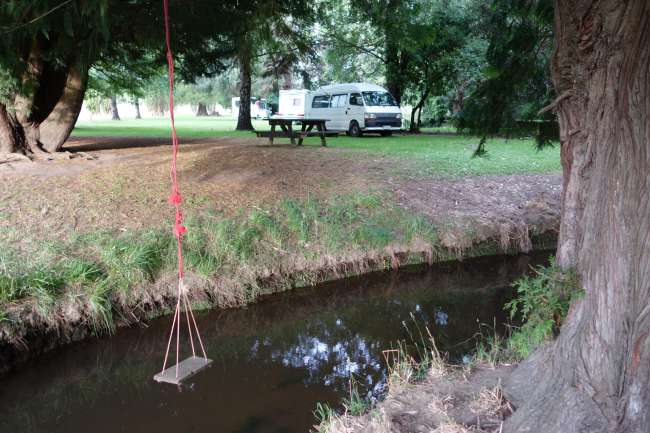
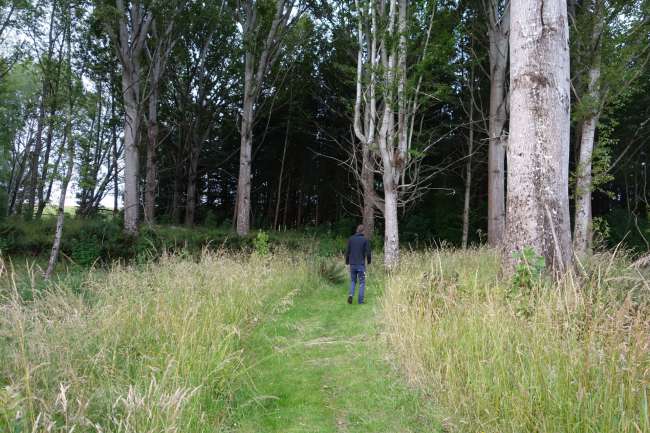
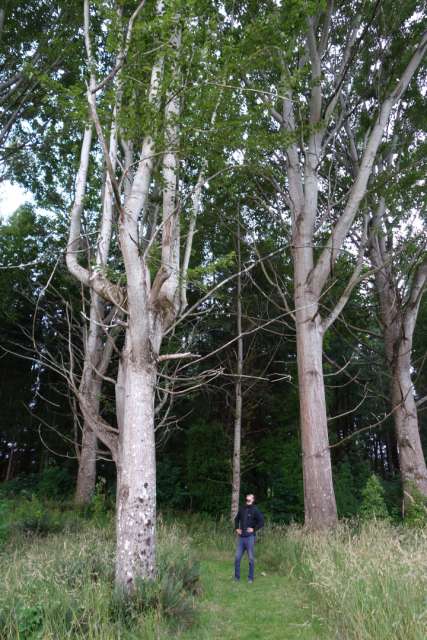
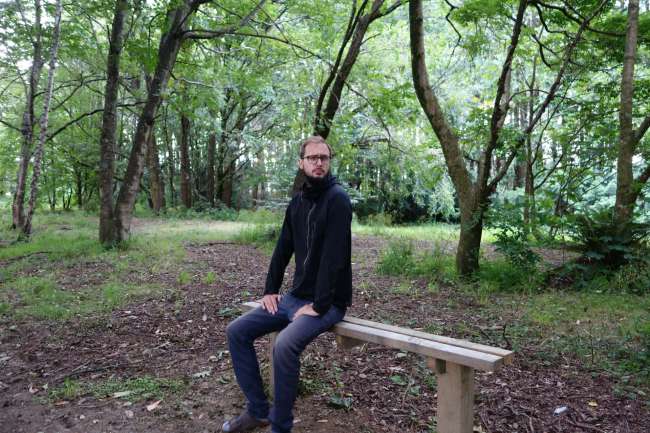
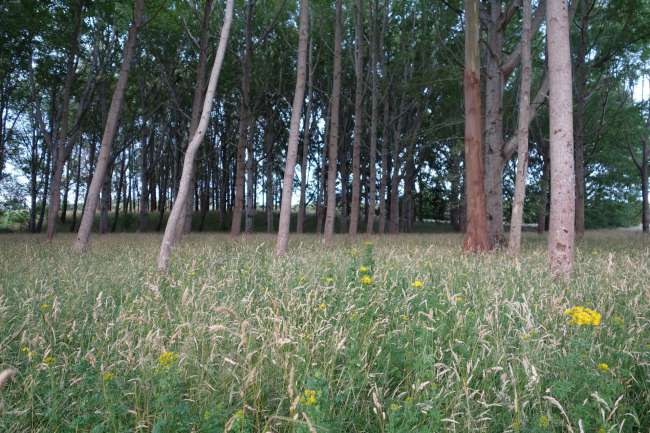
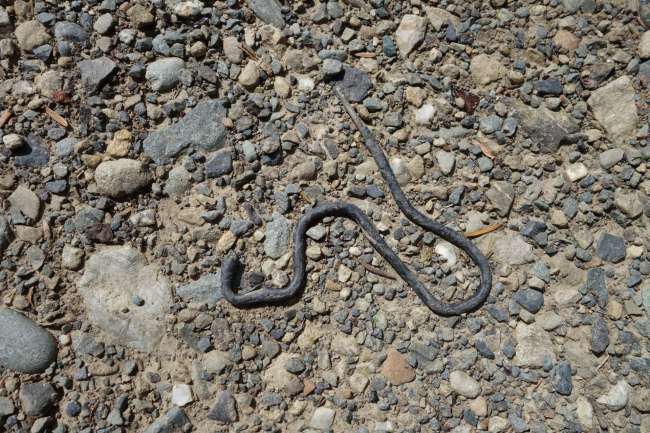
Bhalisela i-Newsletter
There wasn't much to see on the road from Dunedin to Invercargill, maybe because of the weather...


But the sun came out in the evening when we found a cozy spot by a small lake for the night:

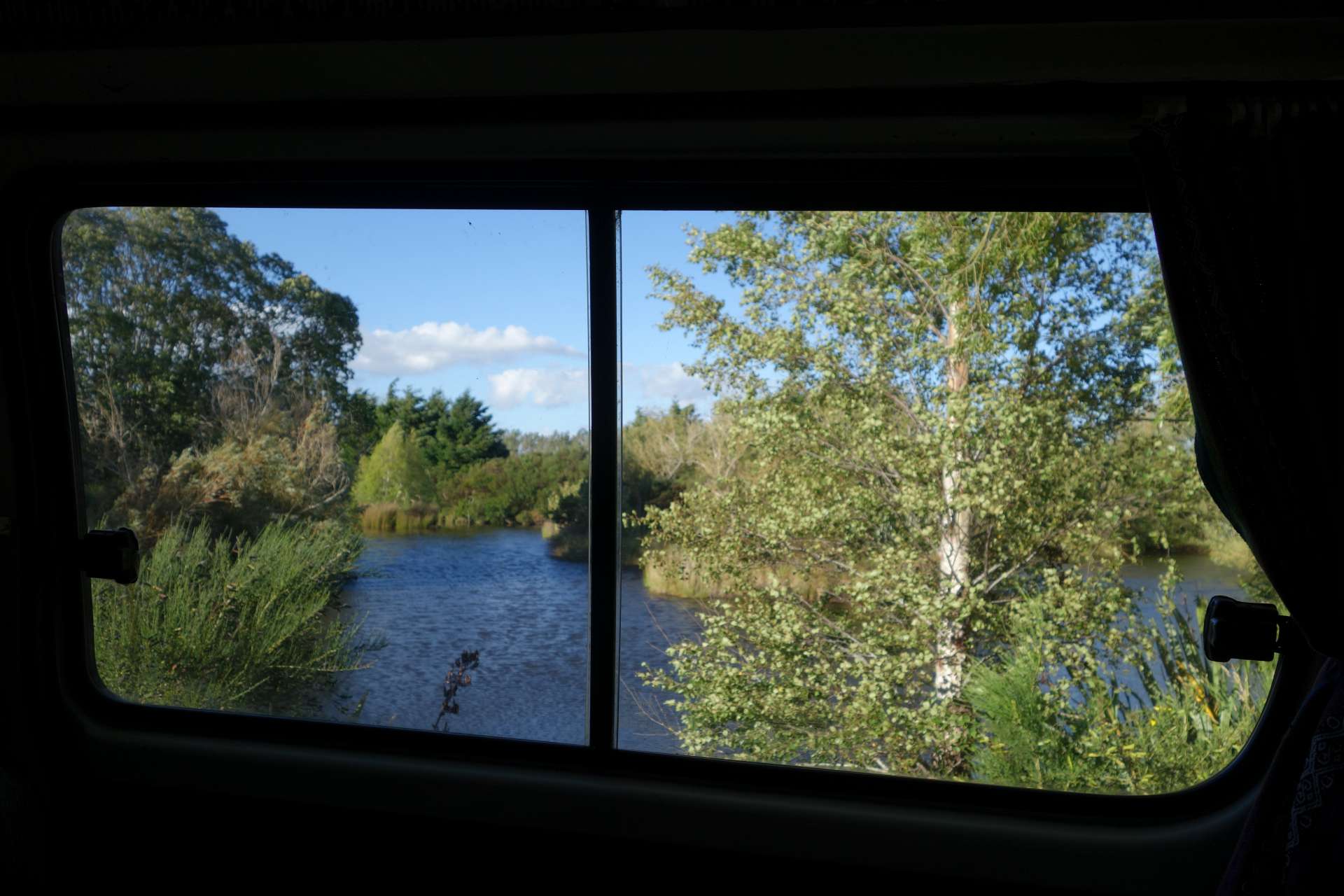
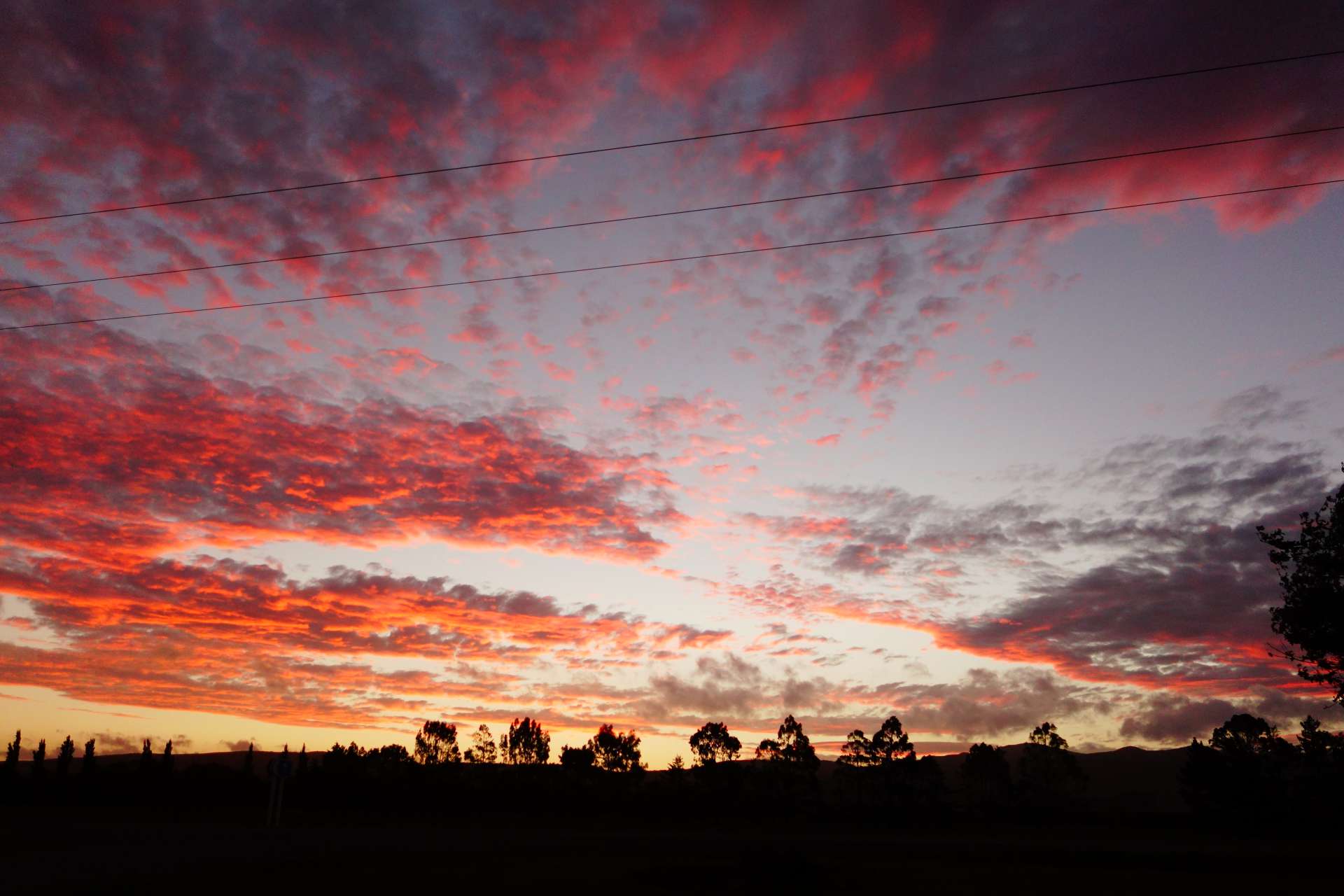
Since the next few days were as rainy as the previous ones, we spent a few days in the library in the town of Gore. It is located here:
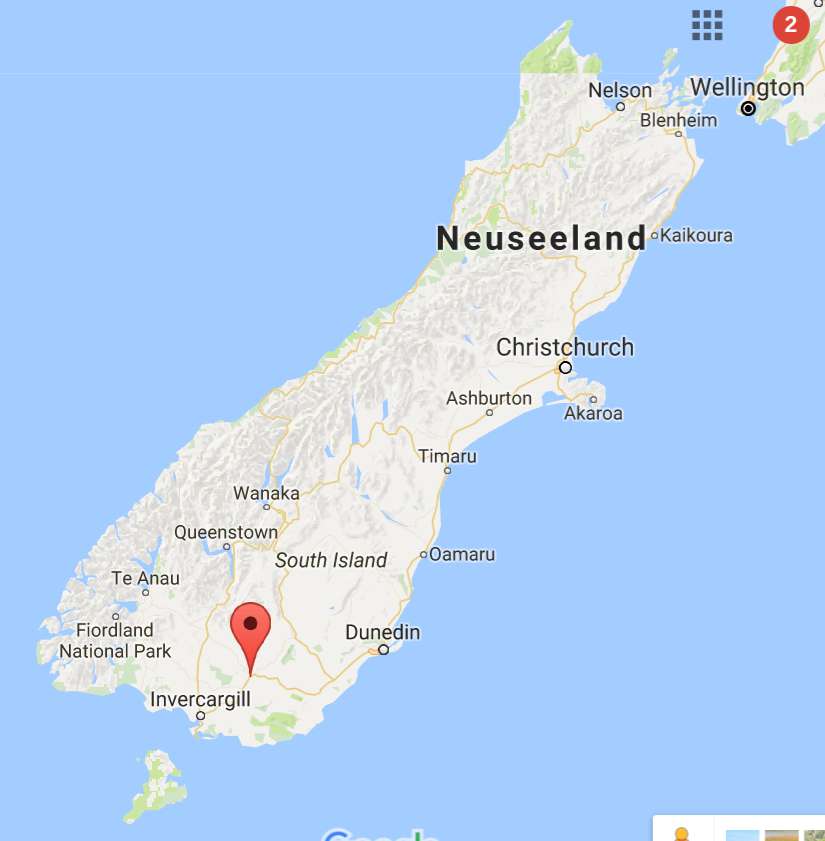
We diligently wrote applications and took a little trip to the nearby Croydon Bush when the rain took a break:
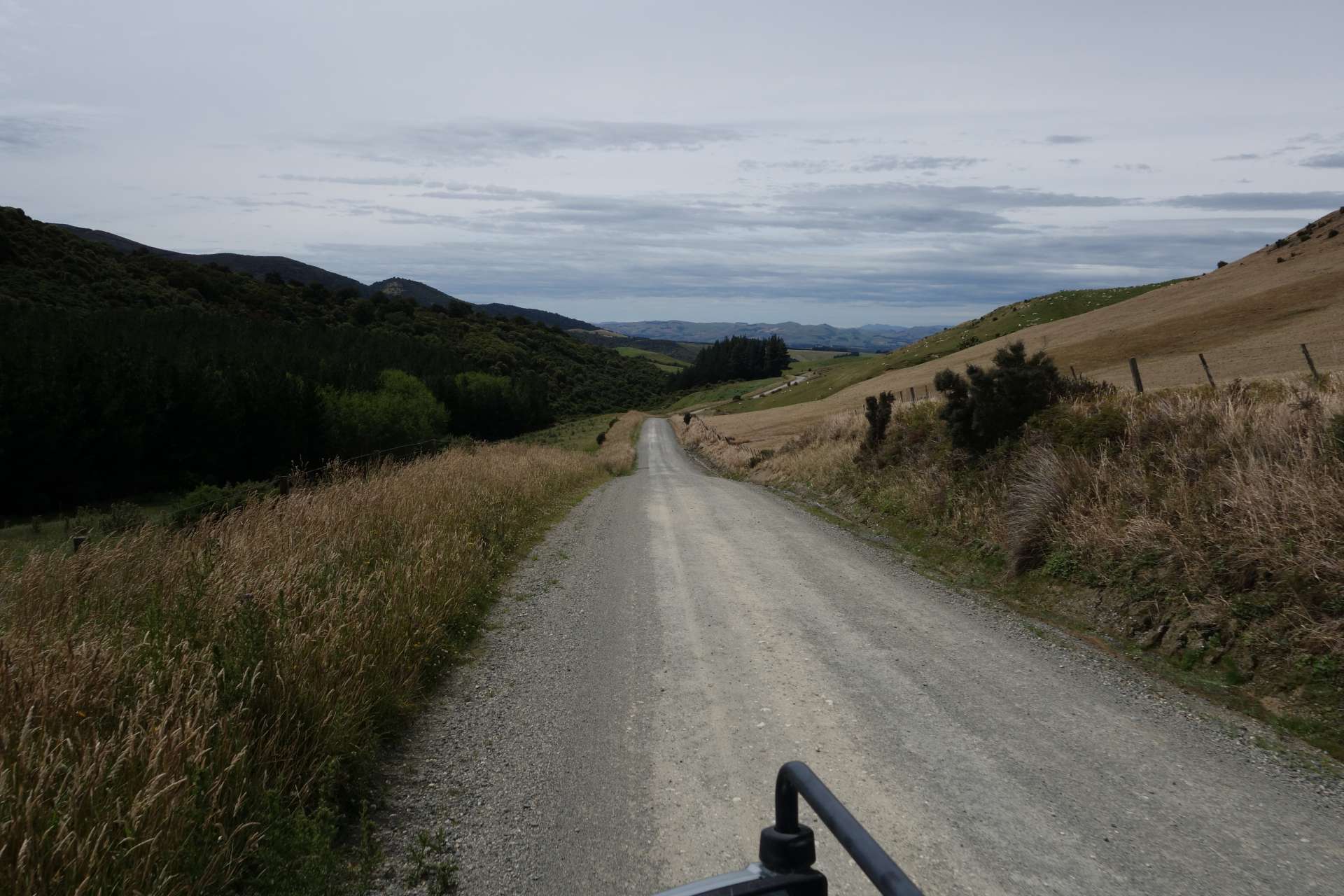
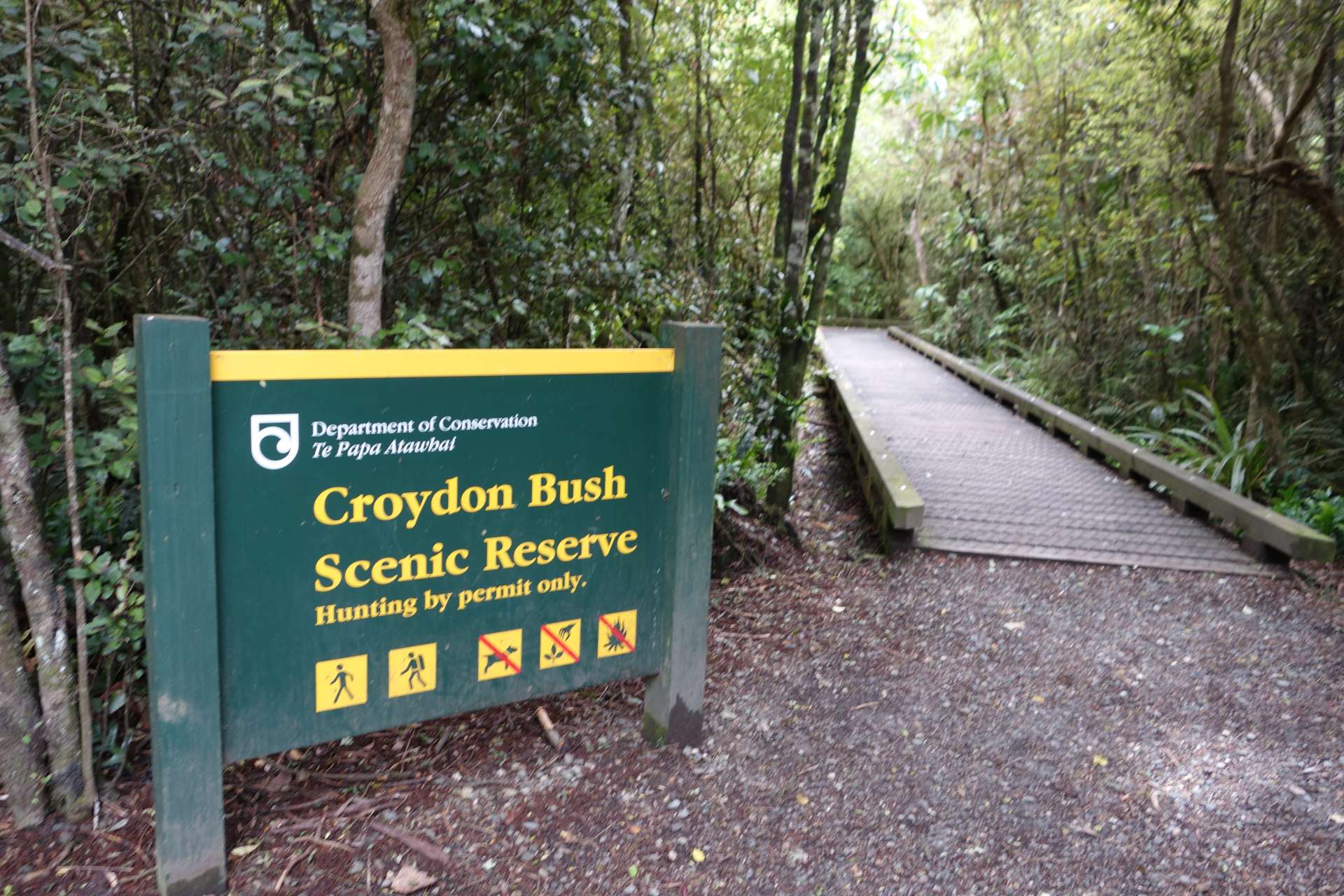
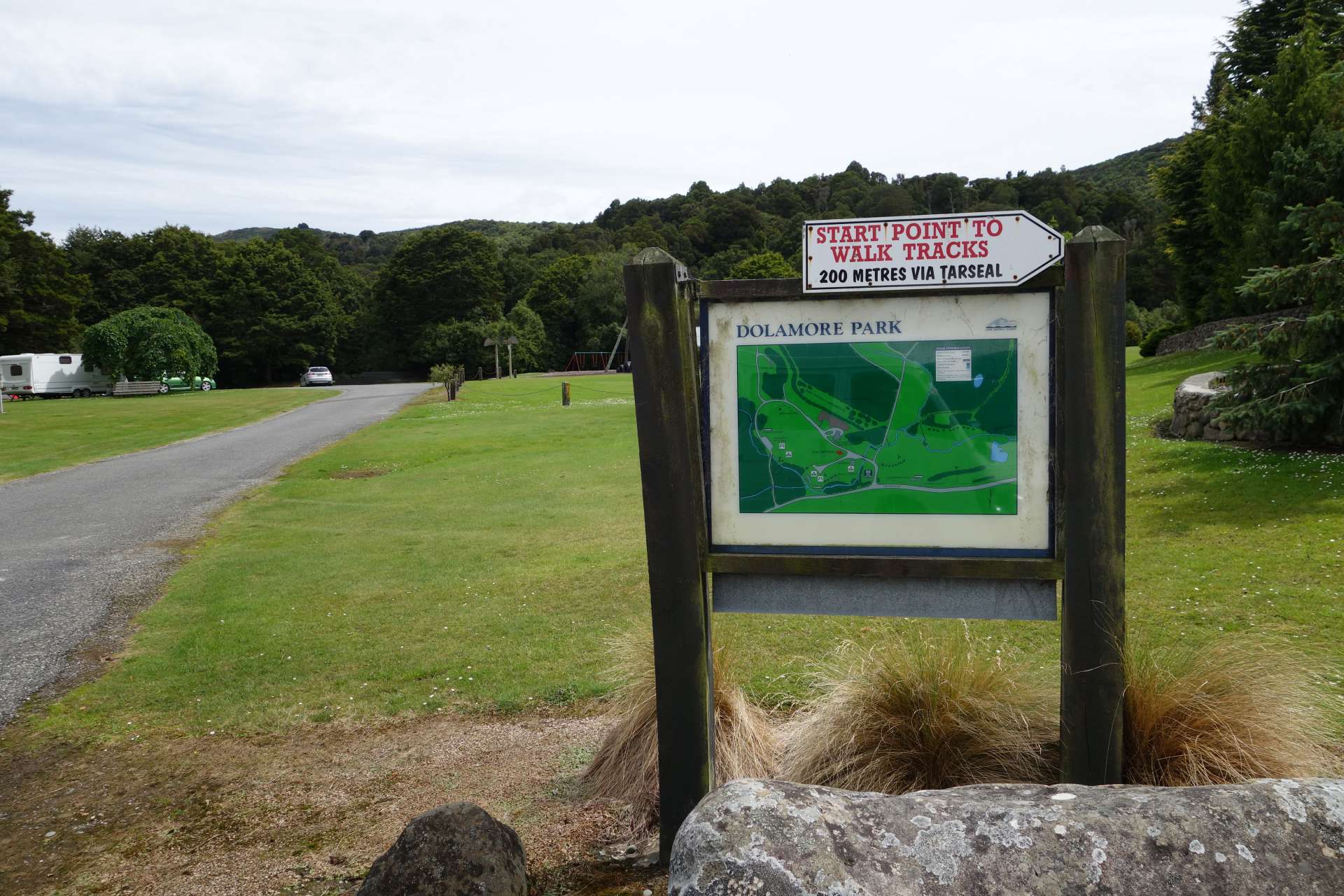
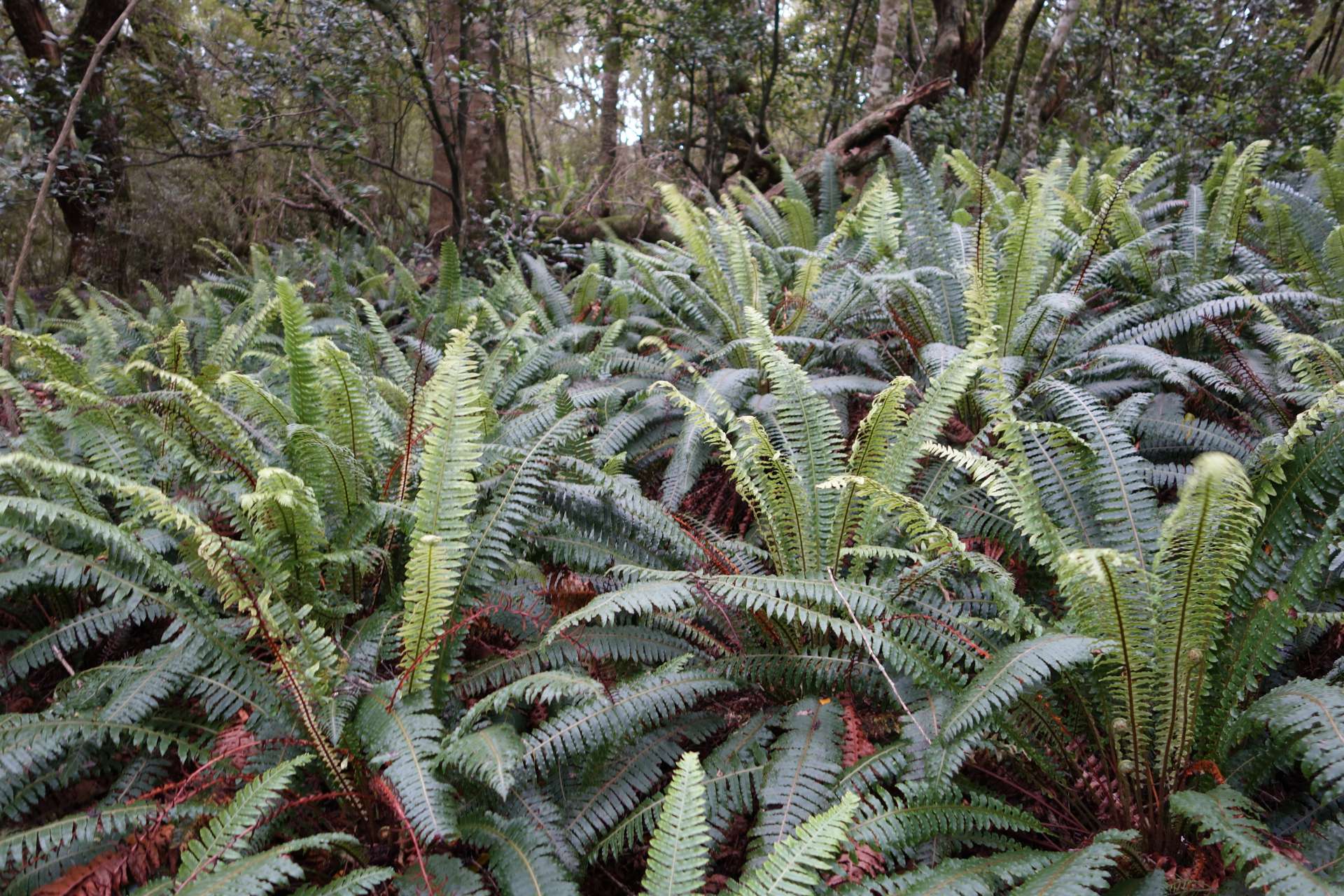

Here we went uphill to a viewpoint. We were completely out of shape!
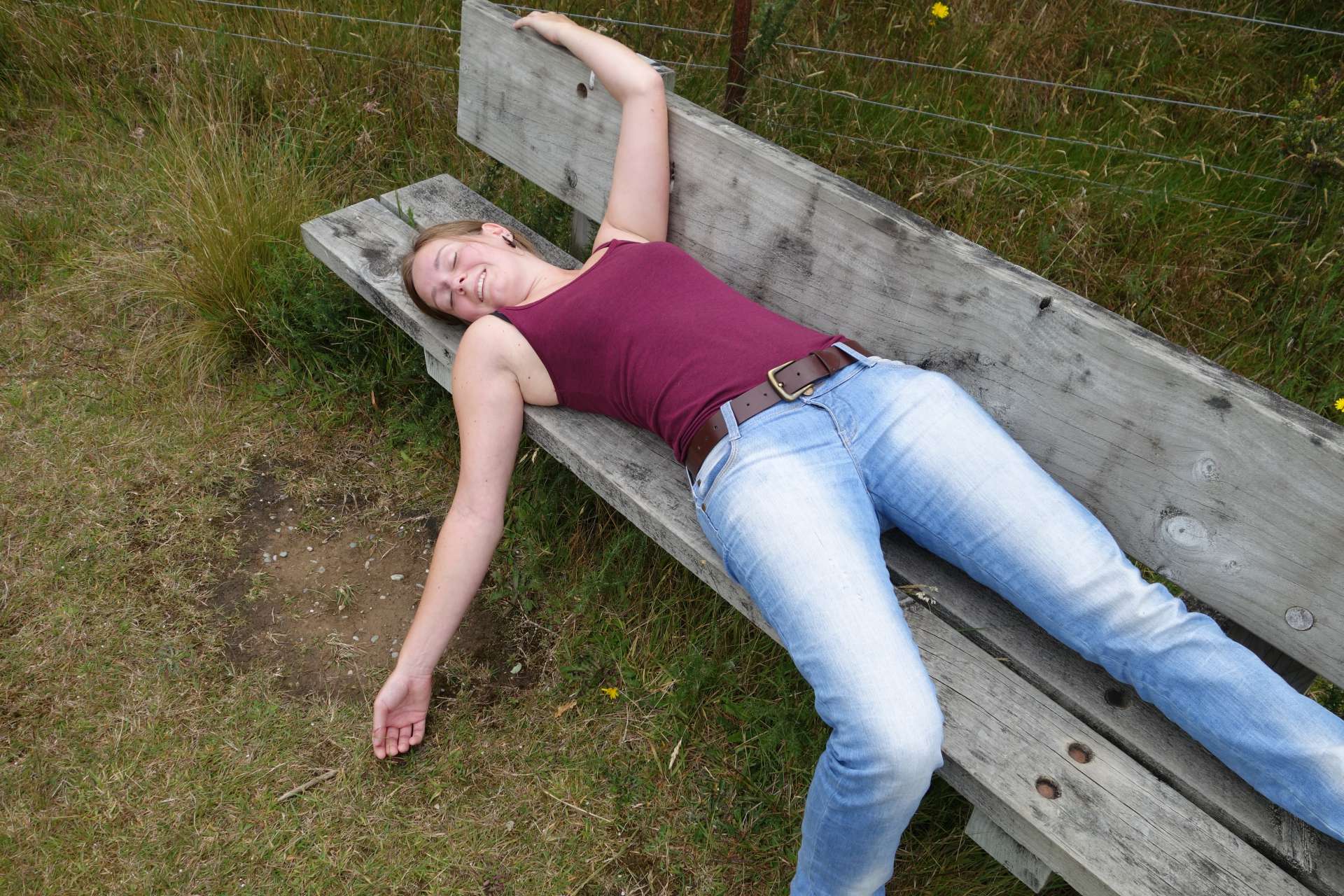

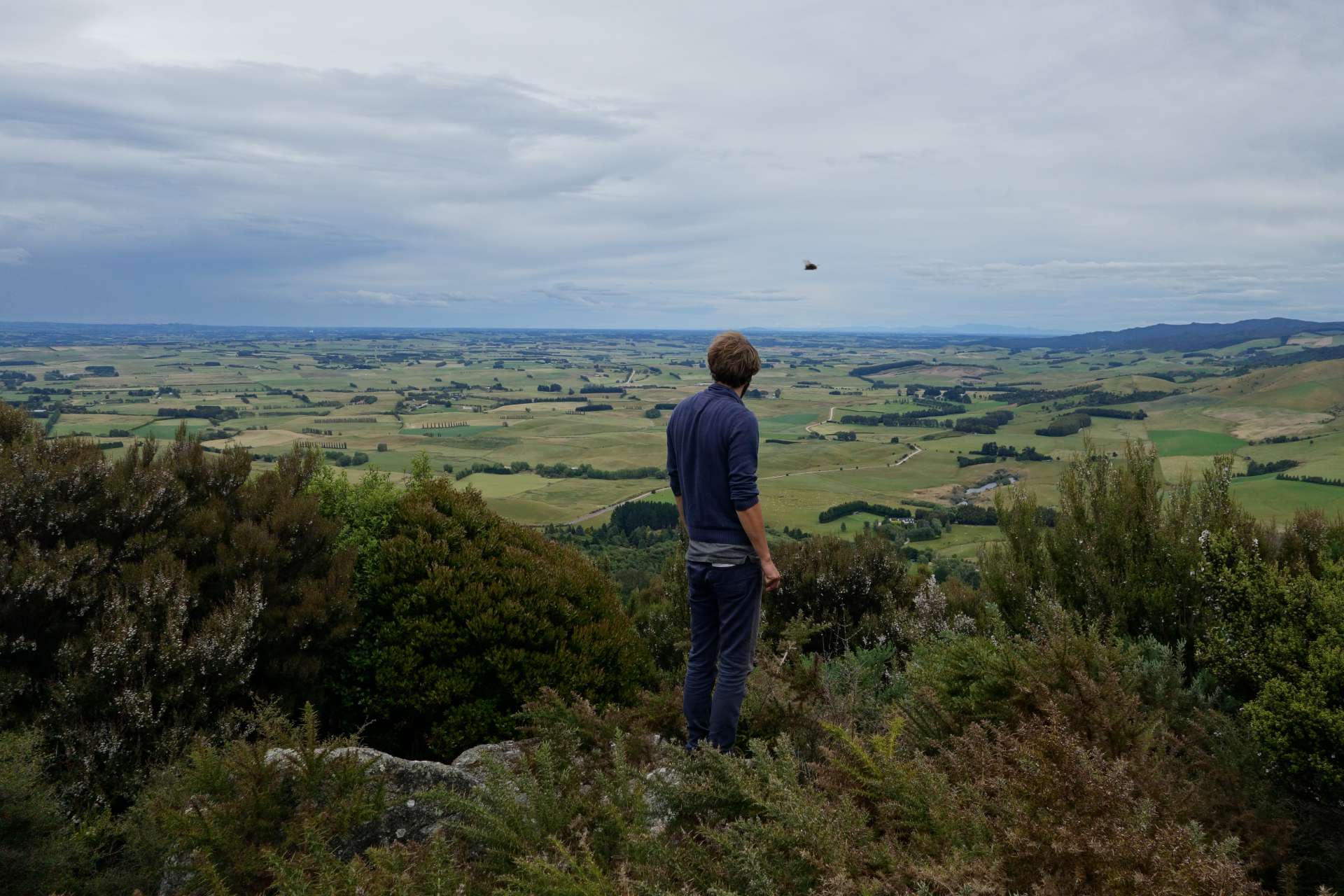
(Cool picture: The bee above Hannes' head is flying through the photo and now looks like a giant buzz in the distance.)
There was also a small waterfall here (unfortunately not of whisky, as the name promised):
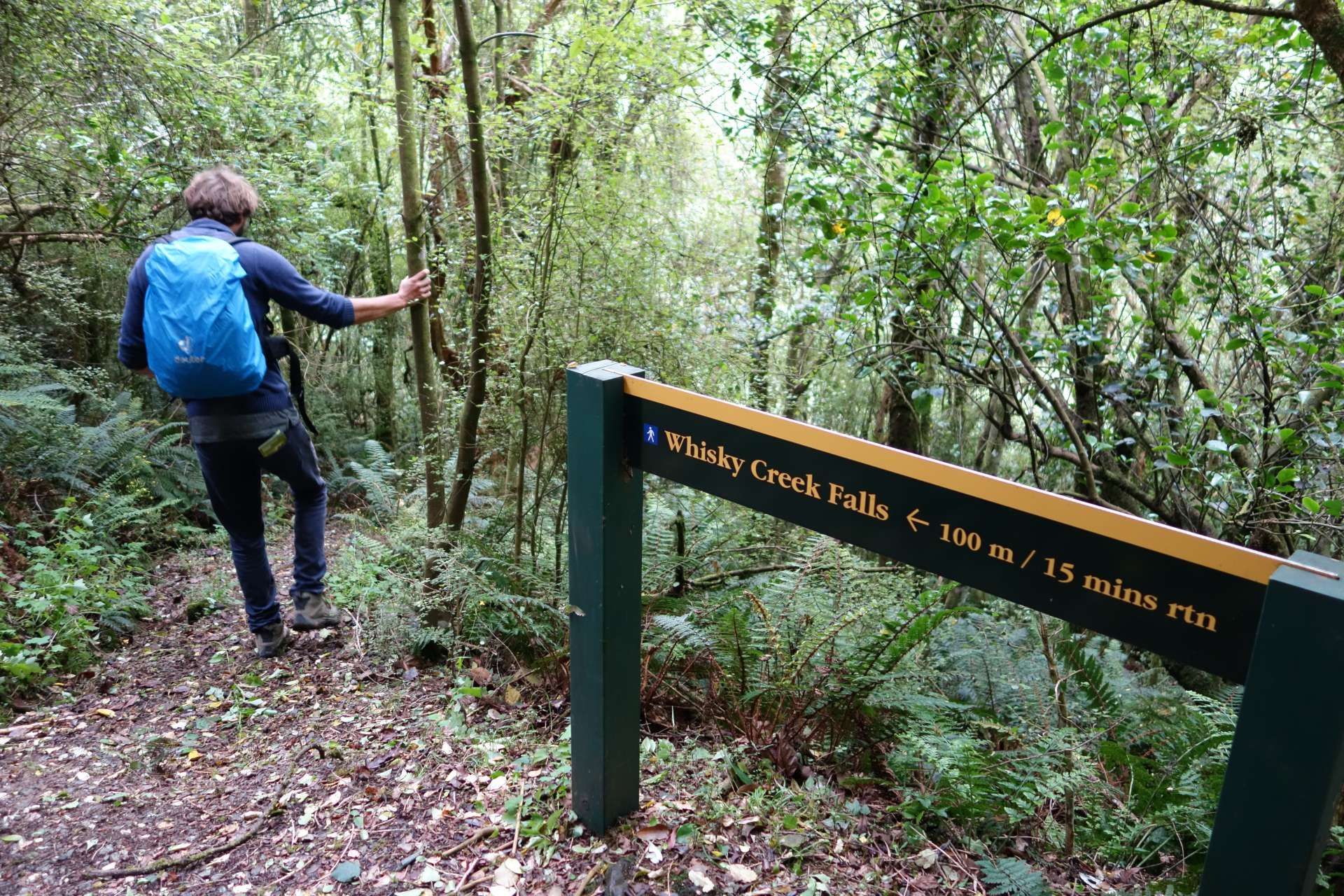
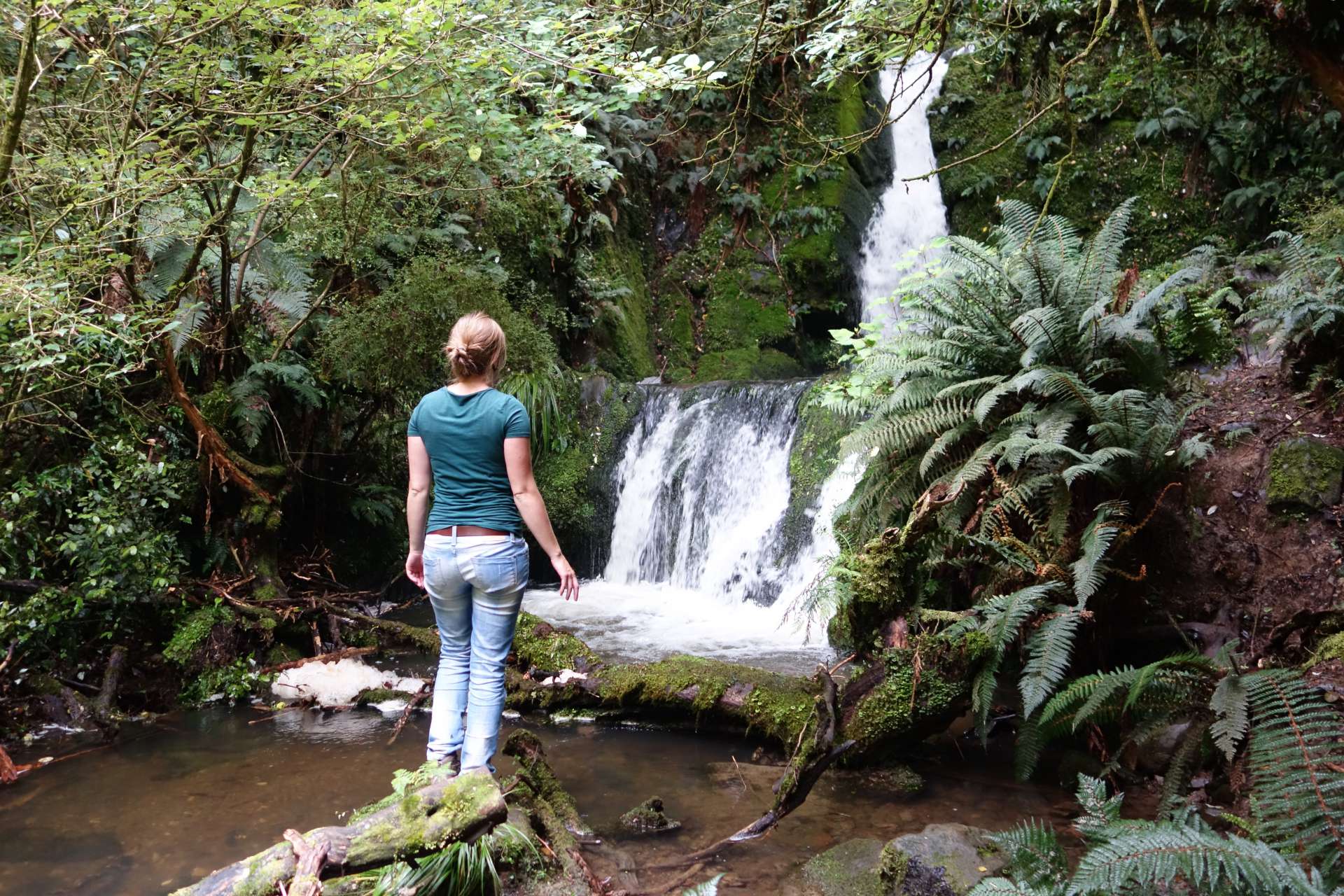
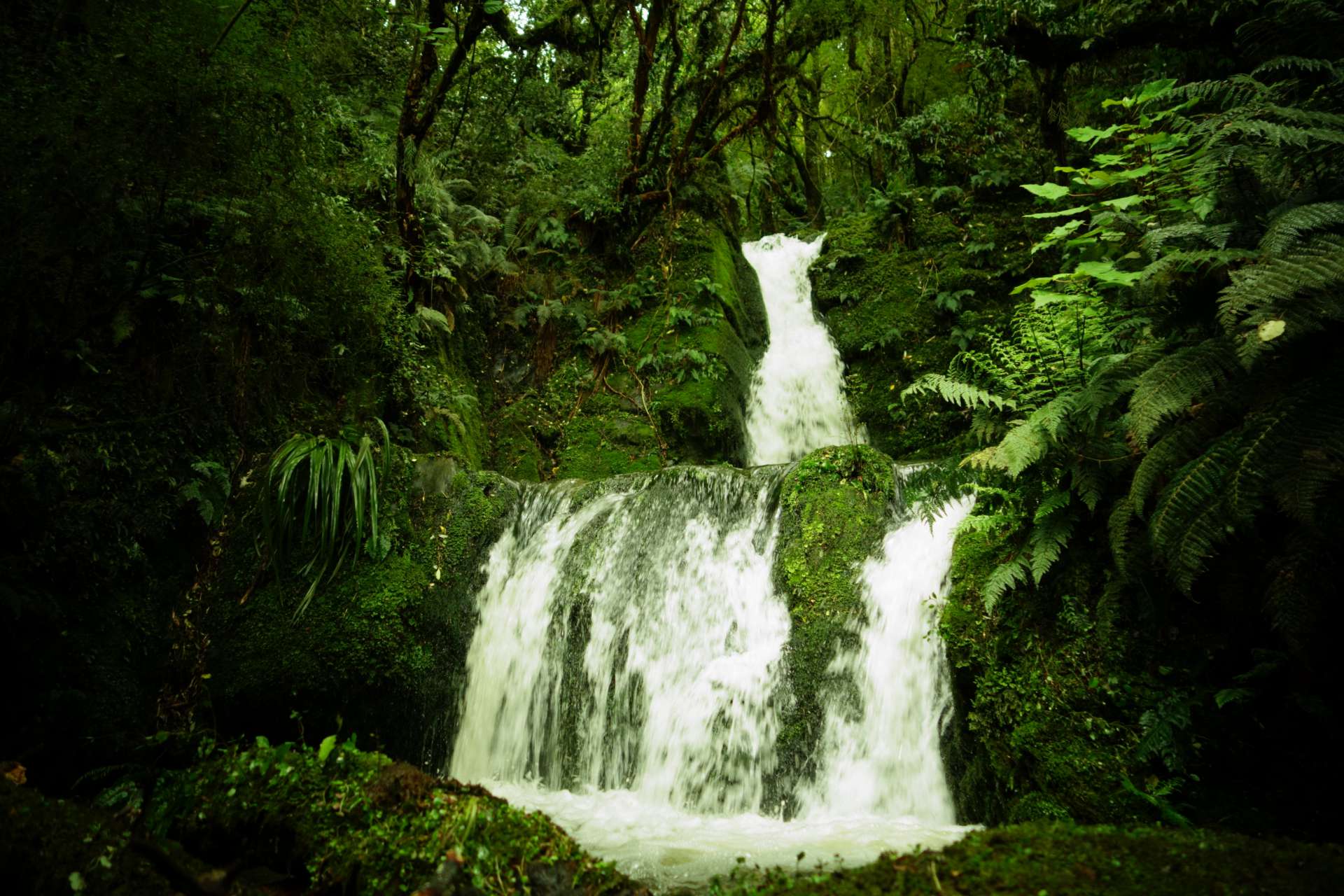
We already made it clear in the very first post that ferns are THE symbol of New Zealand's nature. Perhaps even a more important symbol than the kiwi.
Therefore, it is time to give you a (very) small glimpse into the diversity of the local ferns. Highly scientific descriptions and names are added to each photo:
Fern with knobs: Farnus nippel-noppus.
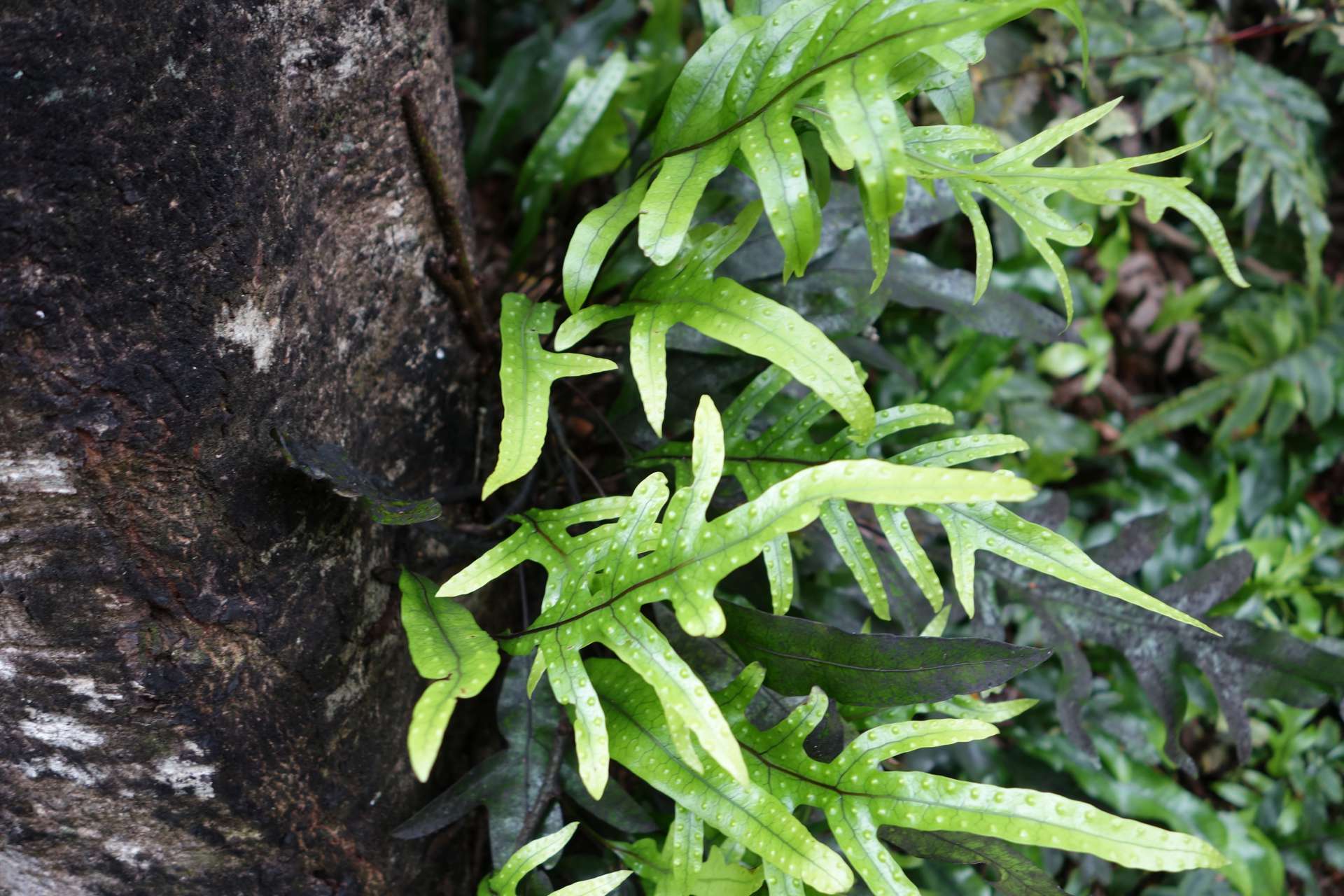
Fern with jagged edges: Farnus blattizackus
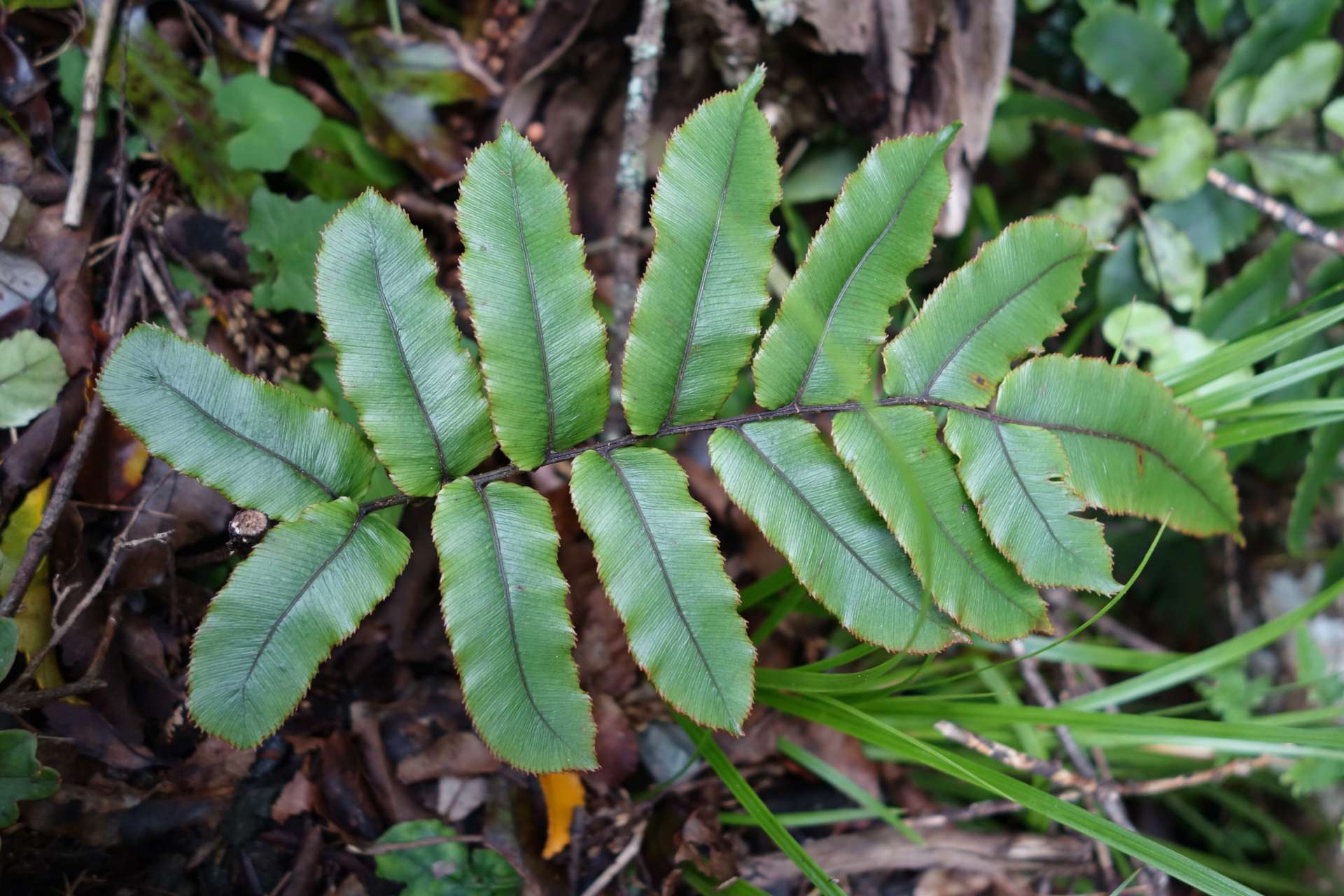
Delicate fern: Farnus zierli
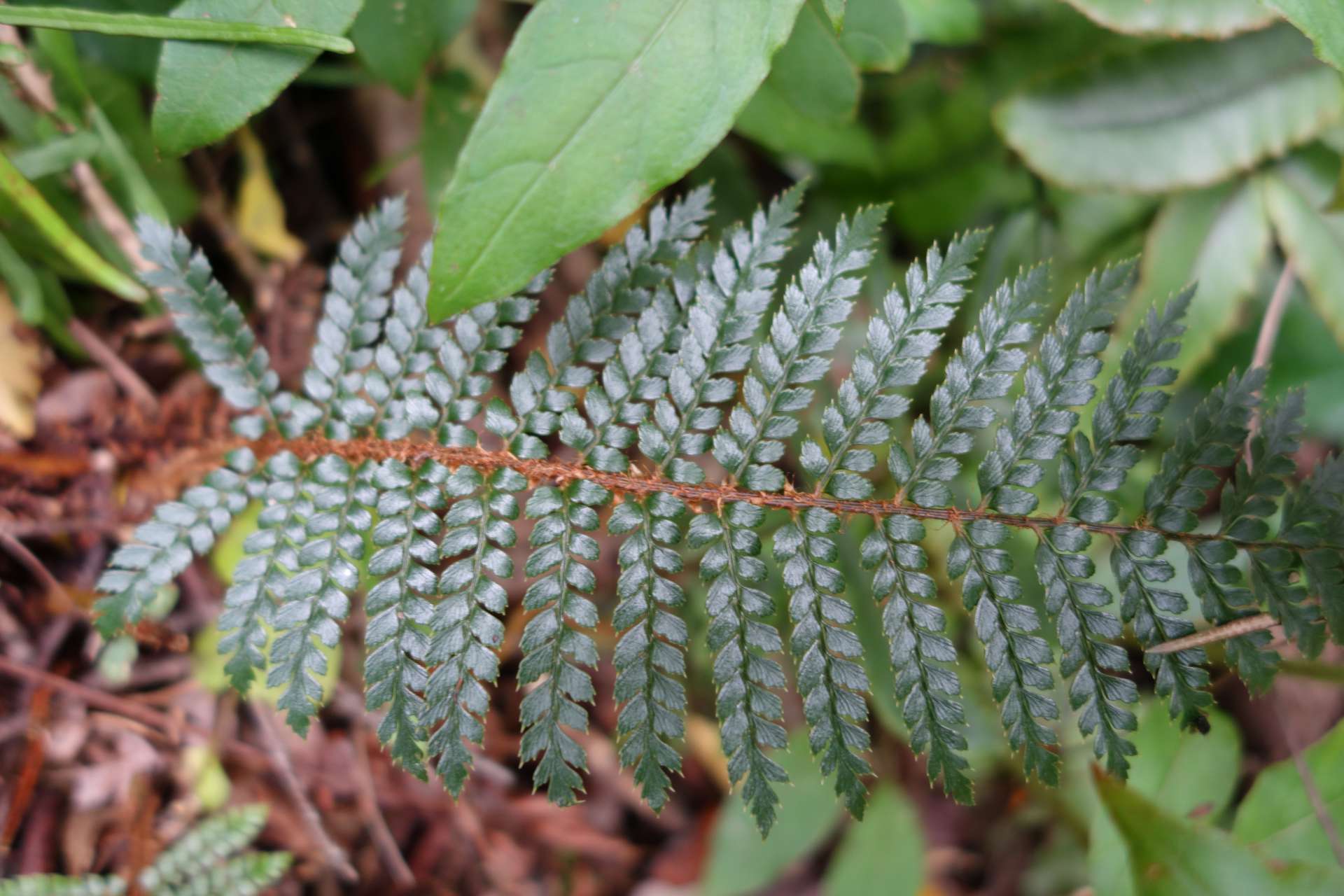
Fern that looks like parsley: Farnus petersilikus
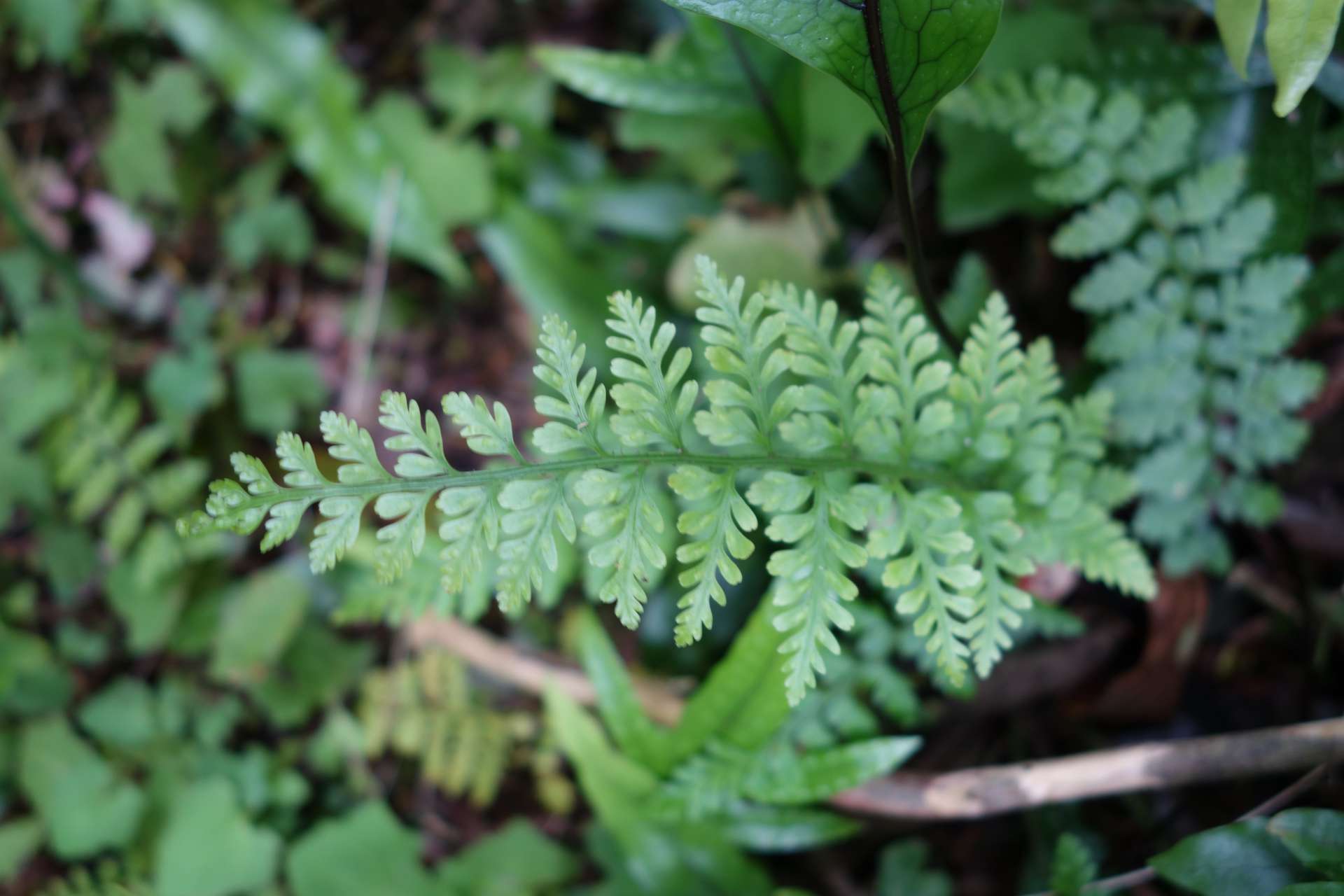
Emaciated fern: Farnus schmächtikus
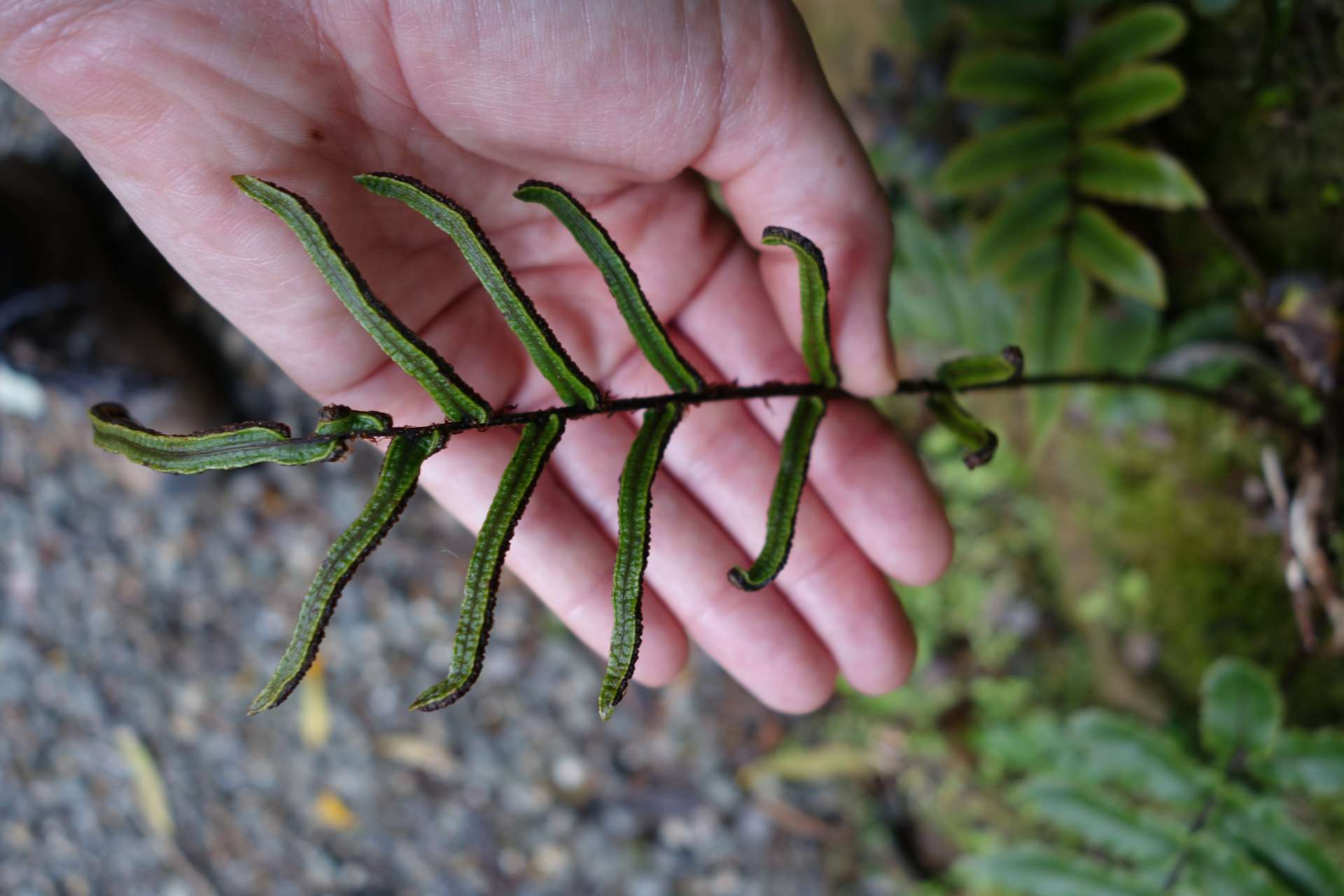
Well, because the weather was so crappy, we spent several nights near the Croydon Bush, specifically at this beautiful rest area in the green, a little north of Gore:
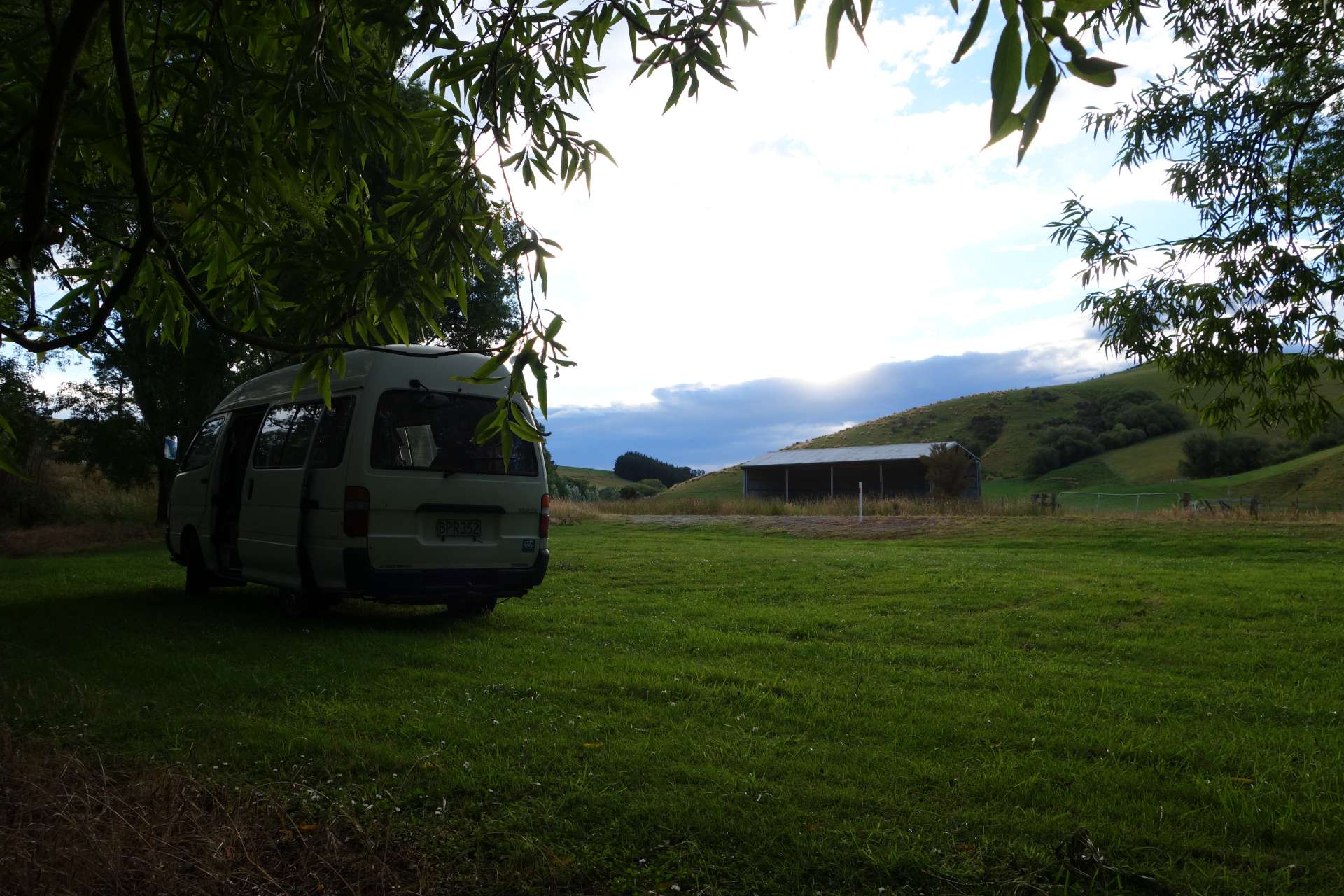
We were completely alone here, which was sometimes a bit eerie when we had the windows open at night and the rustling of the trees in the wind was quite loud...
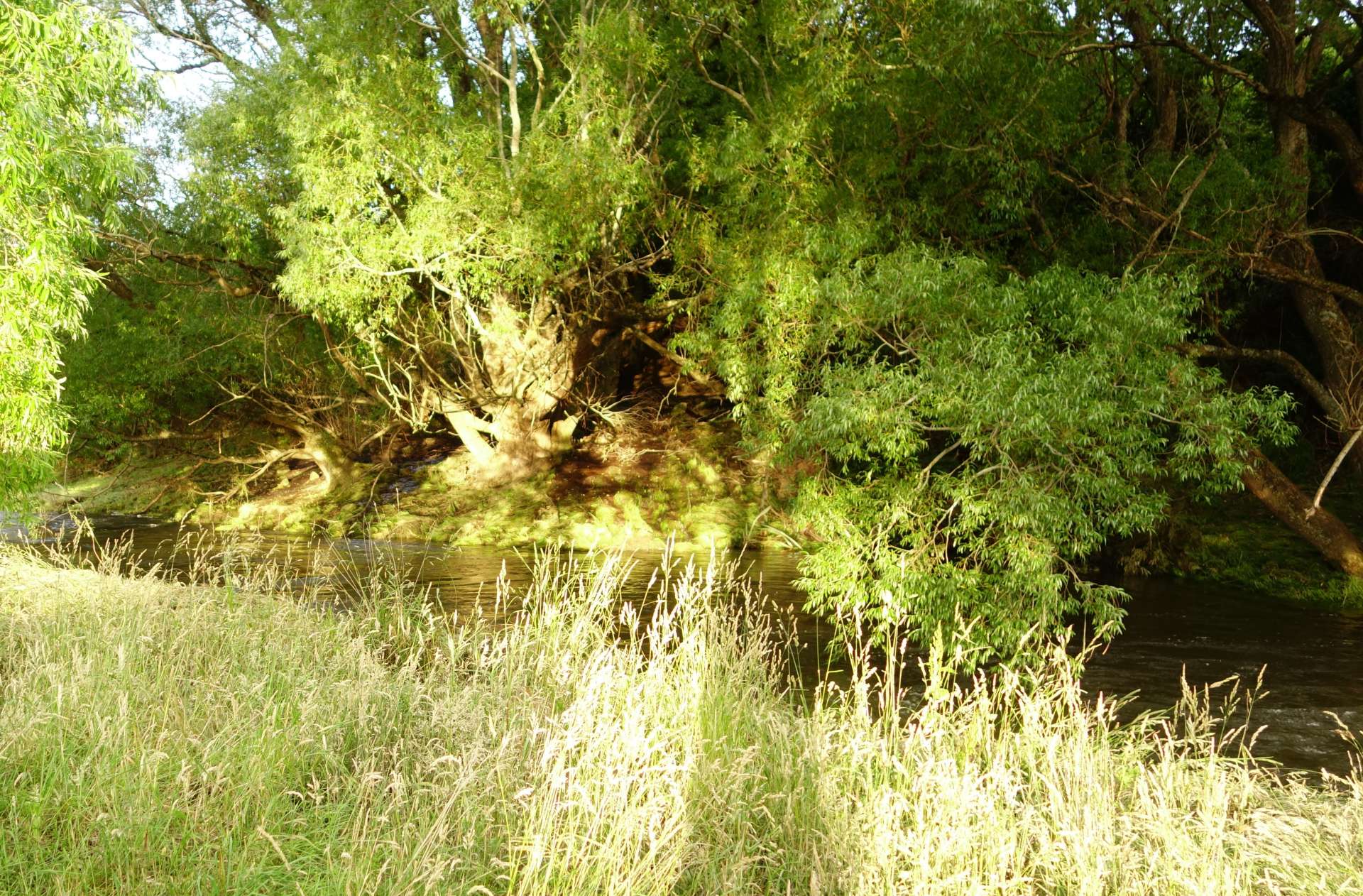
Our everyday life consisted of going to the library (internet, electricity) and driving back to our green sleeping place in the evening. It wasn't particularly exciting, but quite relaxing :)
Normally, you have to change sleeping places after 3 days, according to the law. But there were more beautiful green places nearby, like right next to an arboretum ('tree laboratory'):
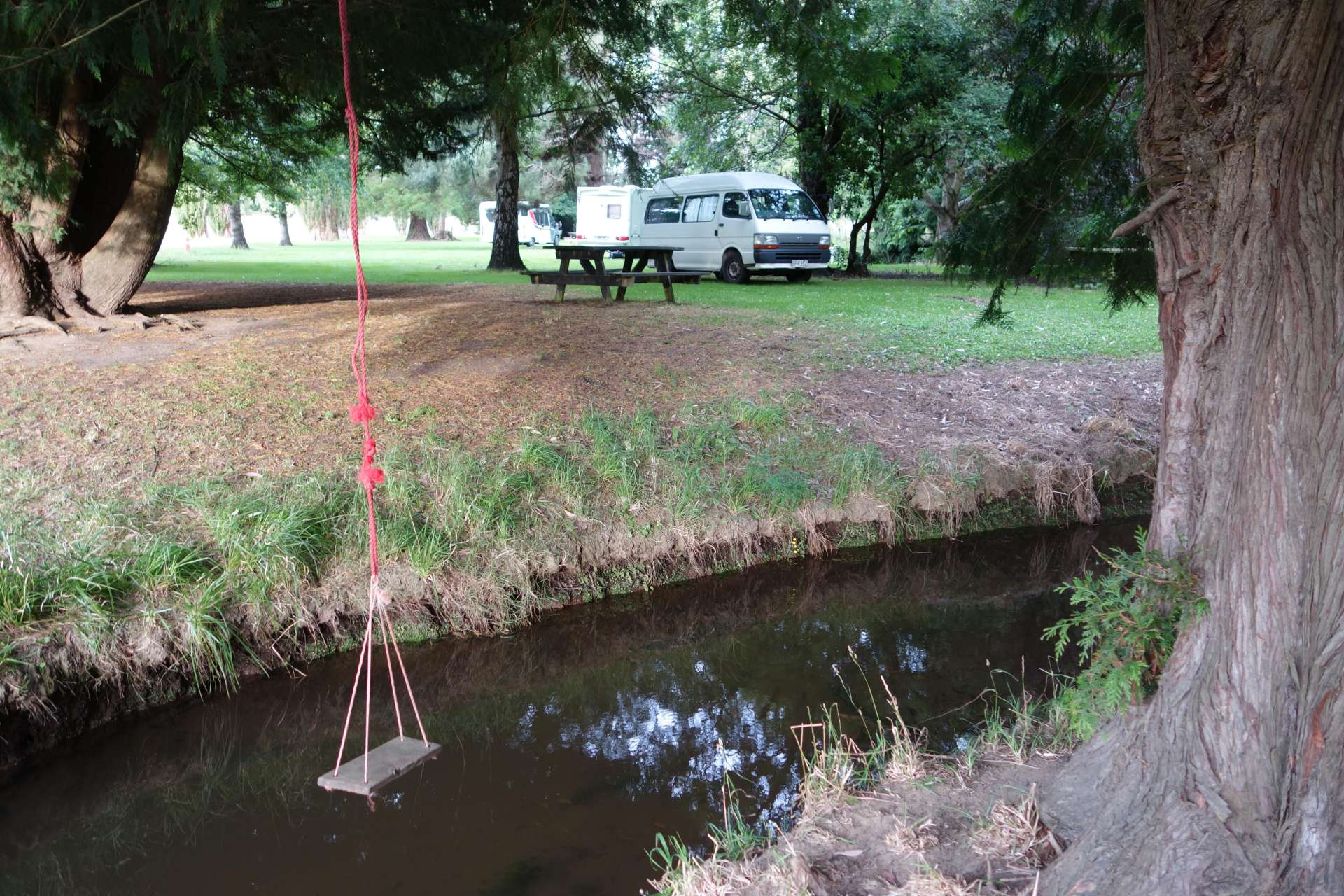
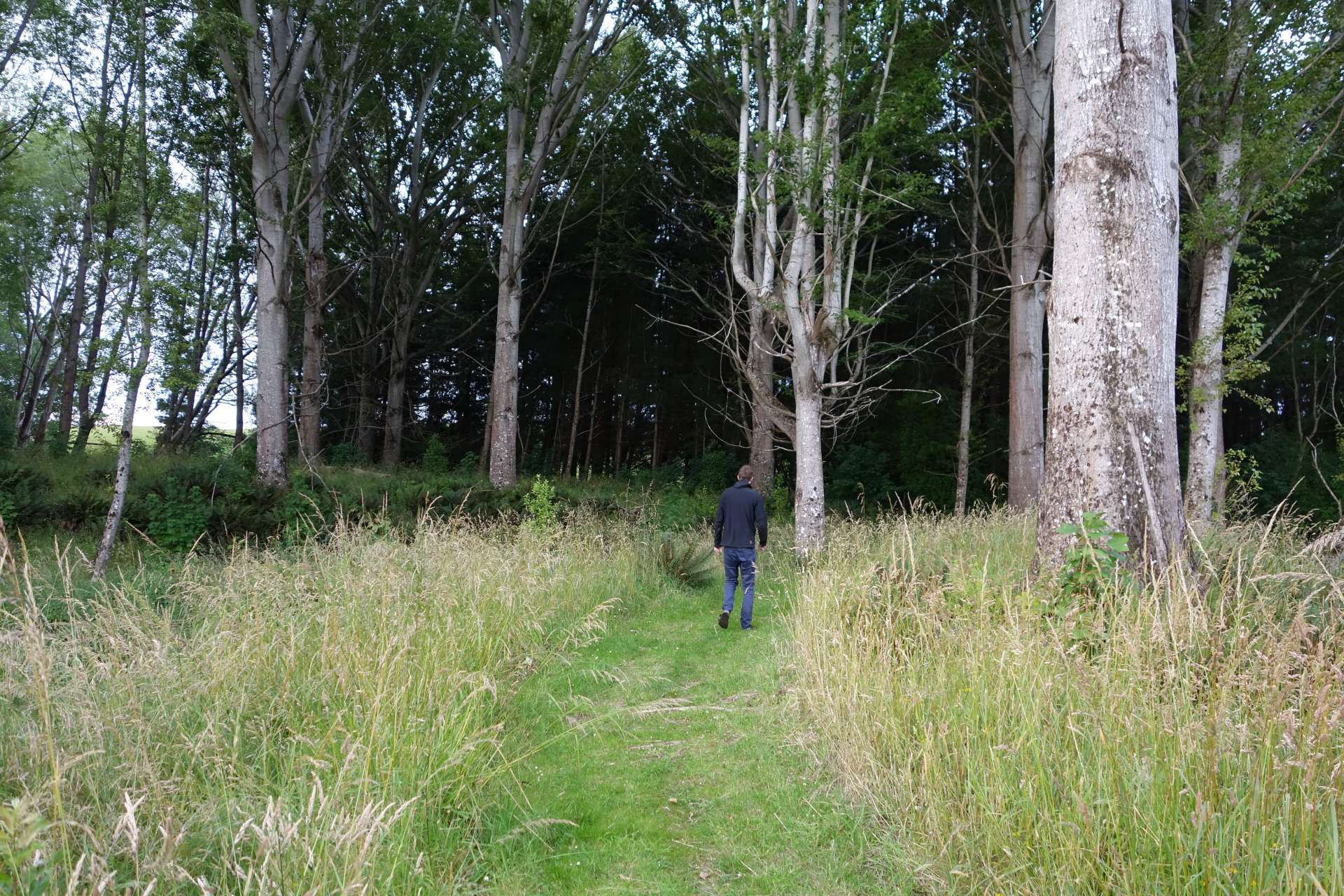
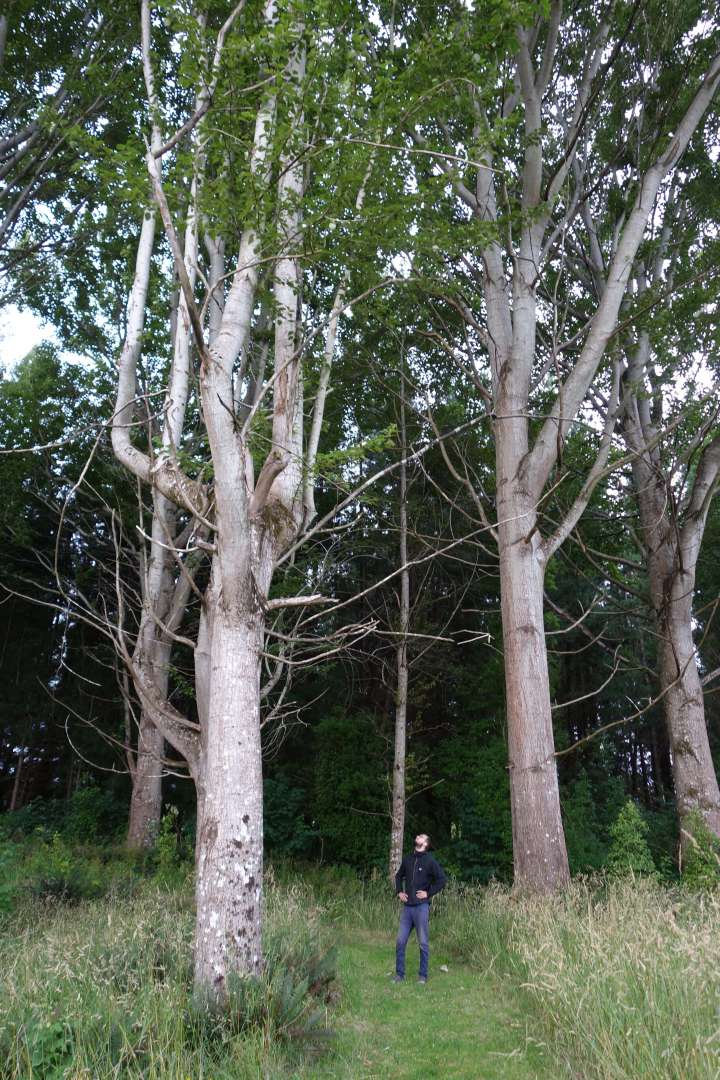
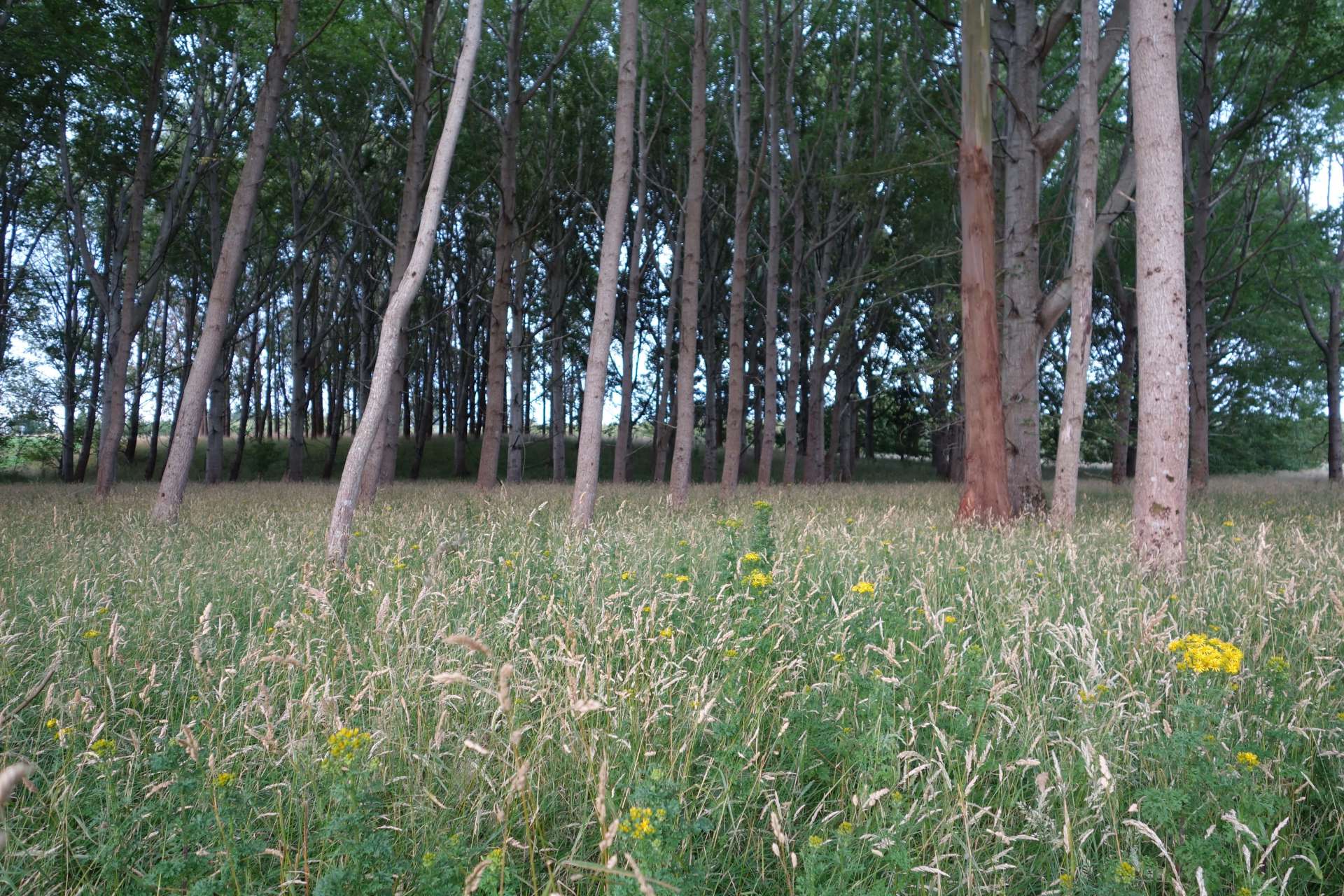
After so much fresh air, we finally dared to enter the next big city:
+++++++ Invercargill ++++++
It was said that Invercargill was not worth visiting. Basically, one could skip it.
We disagree with this opinion and say that Invercargill has something to offer!
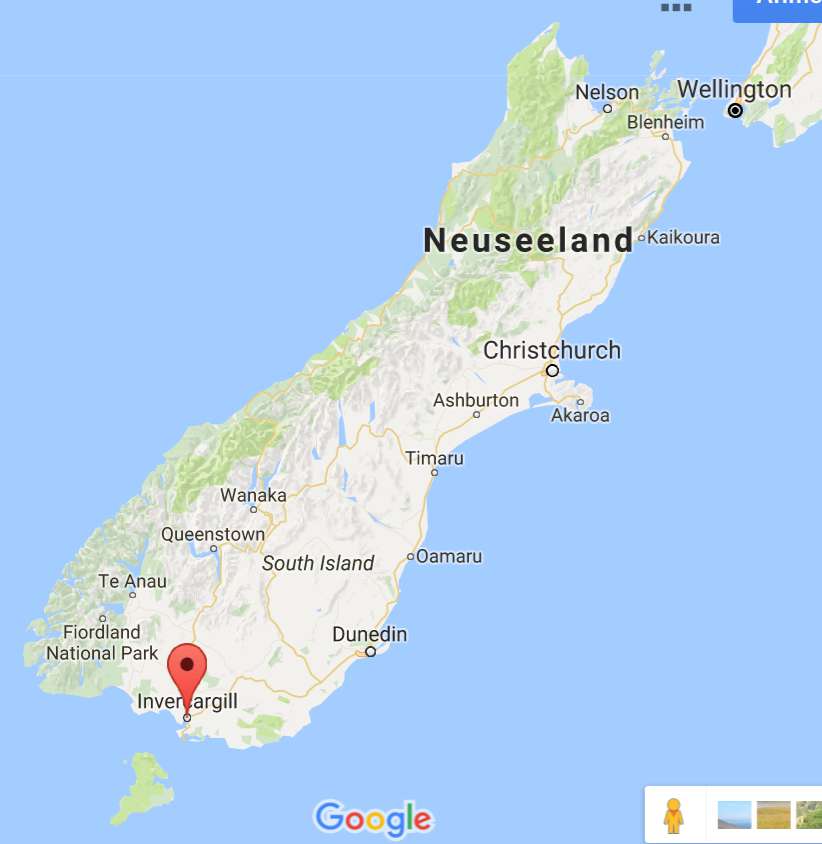
Founded in 1856, Invercargill is not a big city with about 52,000 inhabitants. But that applies to most New Zealand cities.
As is our tradition, we first visited the park to transition from nature to the city. Invercargill has the huge 'Queens Park', which is really beautiful!
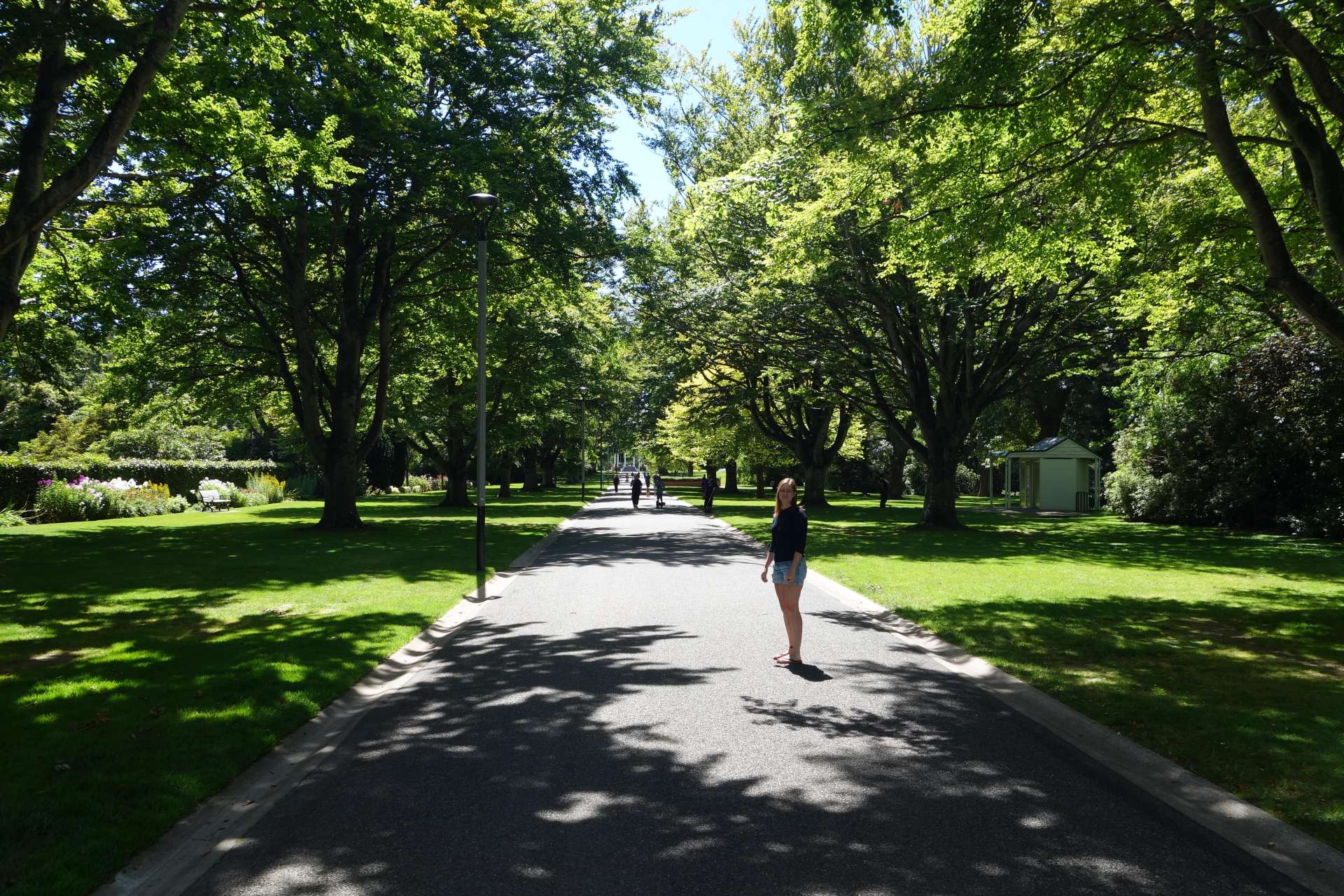
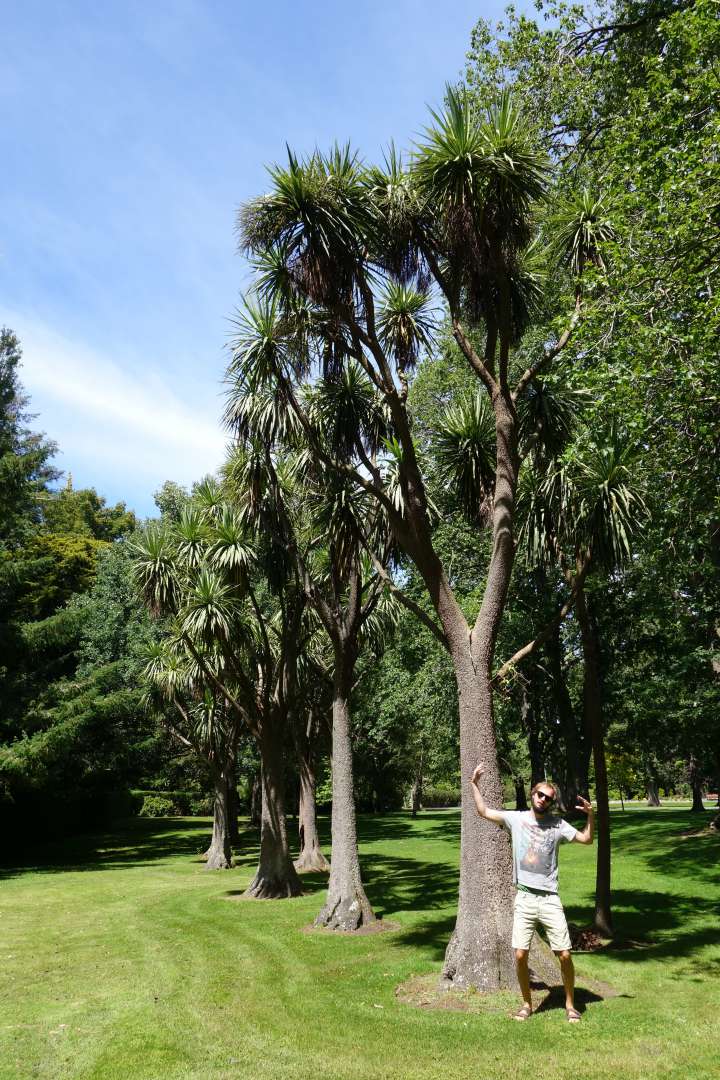
What we particularly liked about this park is that there are so many large, old trees...
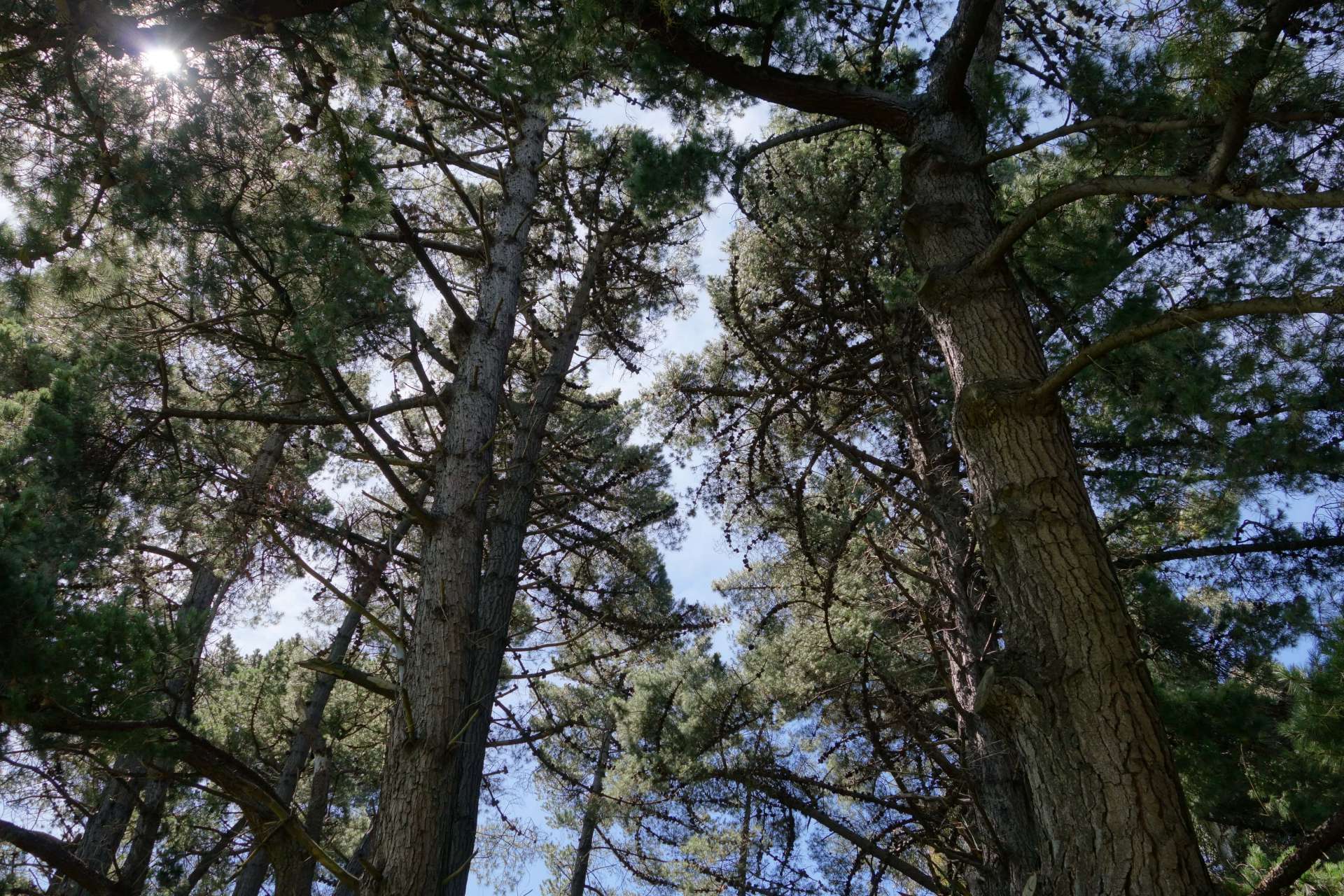
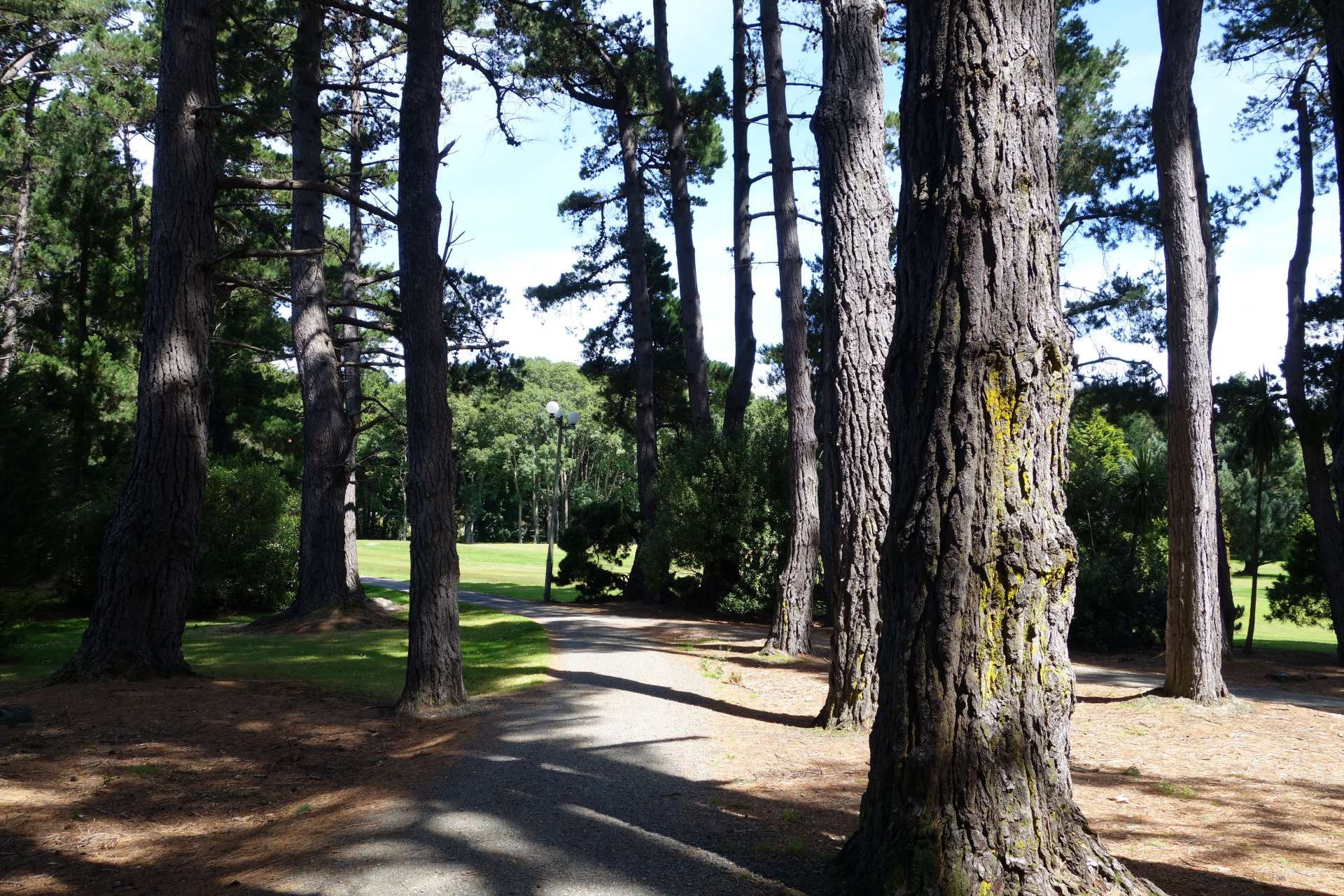
And the BEST part:
Right in the tourist information building, there is a small free museum that not only exhibits objects, but...
LIVING TUATARA!!!
Tuatara, also called the bridge lizard, are the only survivors of the family 'Sphenodontidae'. They are true living fossils, as the Sphenodontidae flourished more than 150 million years ago! (Small comparison: The dinosaurs, as you know, became extinct about 65 million years ago...)
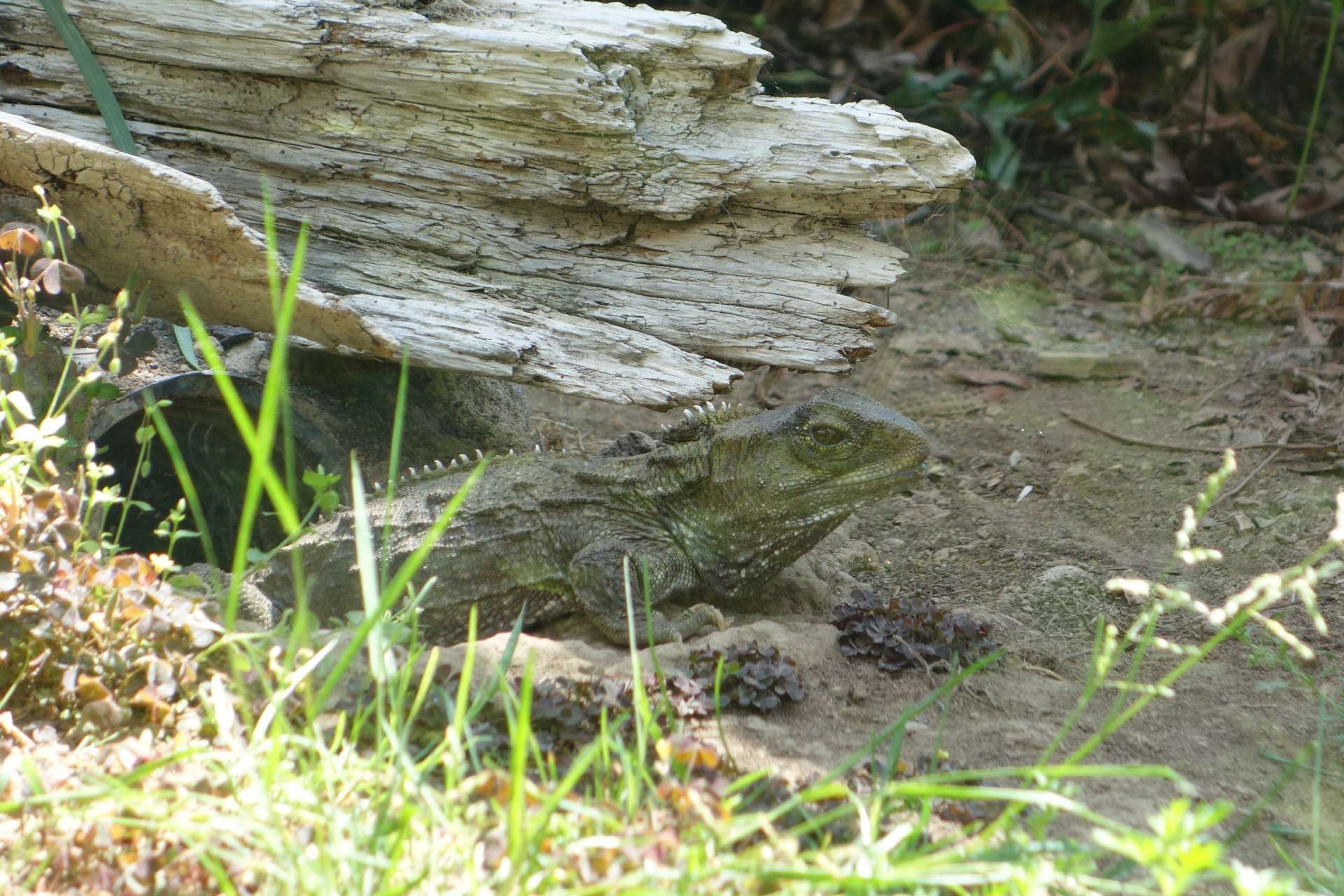
Although the tuatara looks similar to reptiles living today (especially to bearded dragons), they do not belong to the order of reptiles. (This is due to their bone structure. If you want to know more: Wikipedia)
There are a few older and even young animals living in the terrariums in the museum, which is very special. It took decades for captive breeding to finally succeed! In the wild, tuatara can only be found on a few offshore islands of New Zealand. Due to climate change, they could soon become extinct.
This here is still a baby:
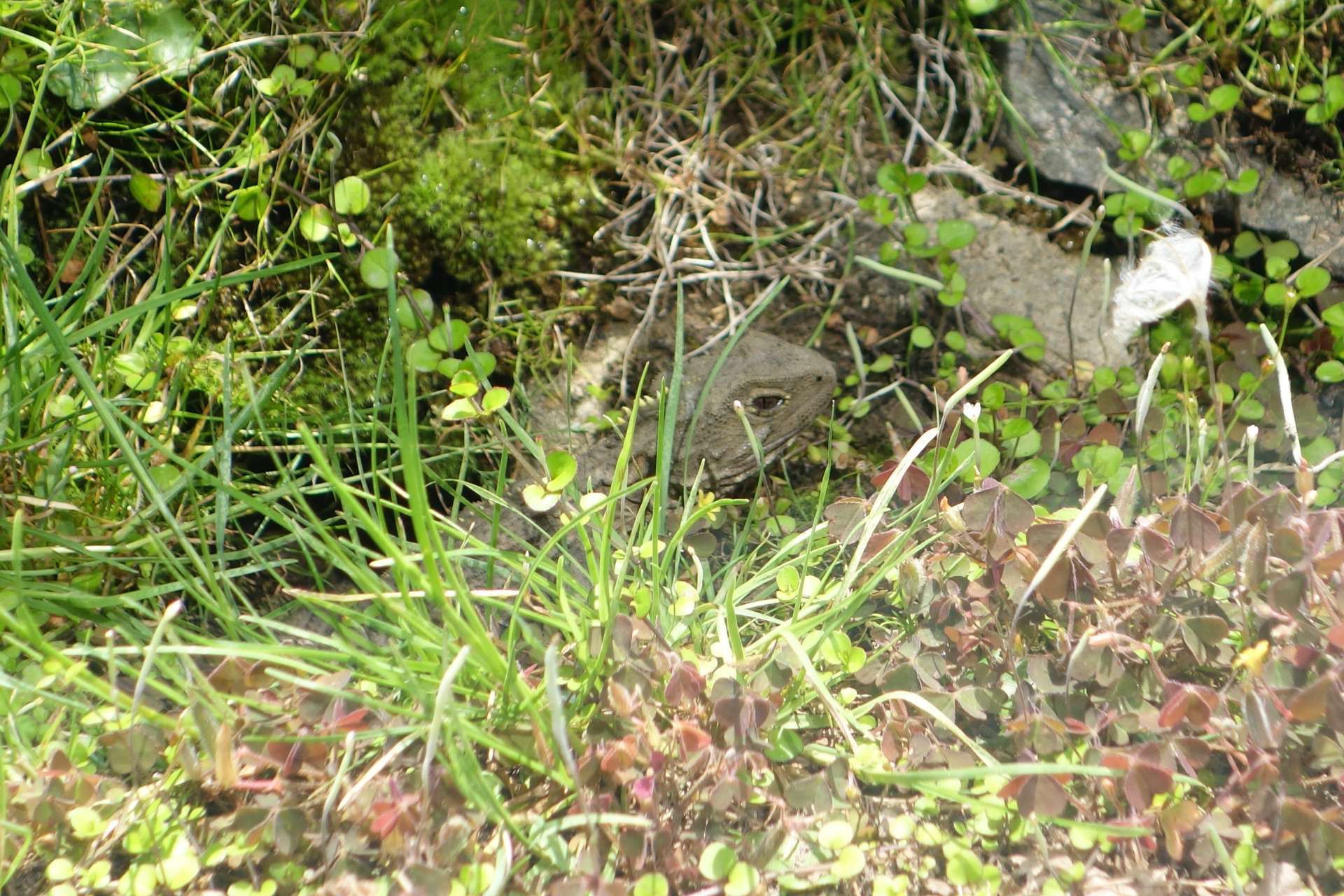
Apart from the fact that these cute mini dragons are ancient, they have a few other special characteristics. For example, they are active at very low temperatures, up to 6 degrees Celsius. In temperatures over 26 degrees Celsius, however, it gets too hot for them (while it becomes cozy for many reptiles). They also live for over 150 years.
You could safely call tuatara clumsy. They move - if at all - not very gracefully, weigh about 1 kg, and are 50-75 cm long. Here is a large male: 'Henry', about 130 years old, unfortunately hardly recognizable because he is hiding in his cave:
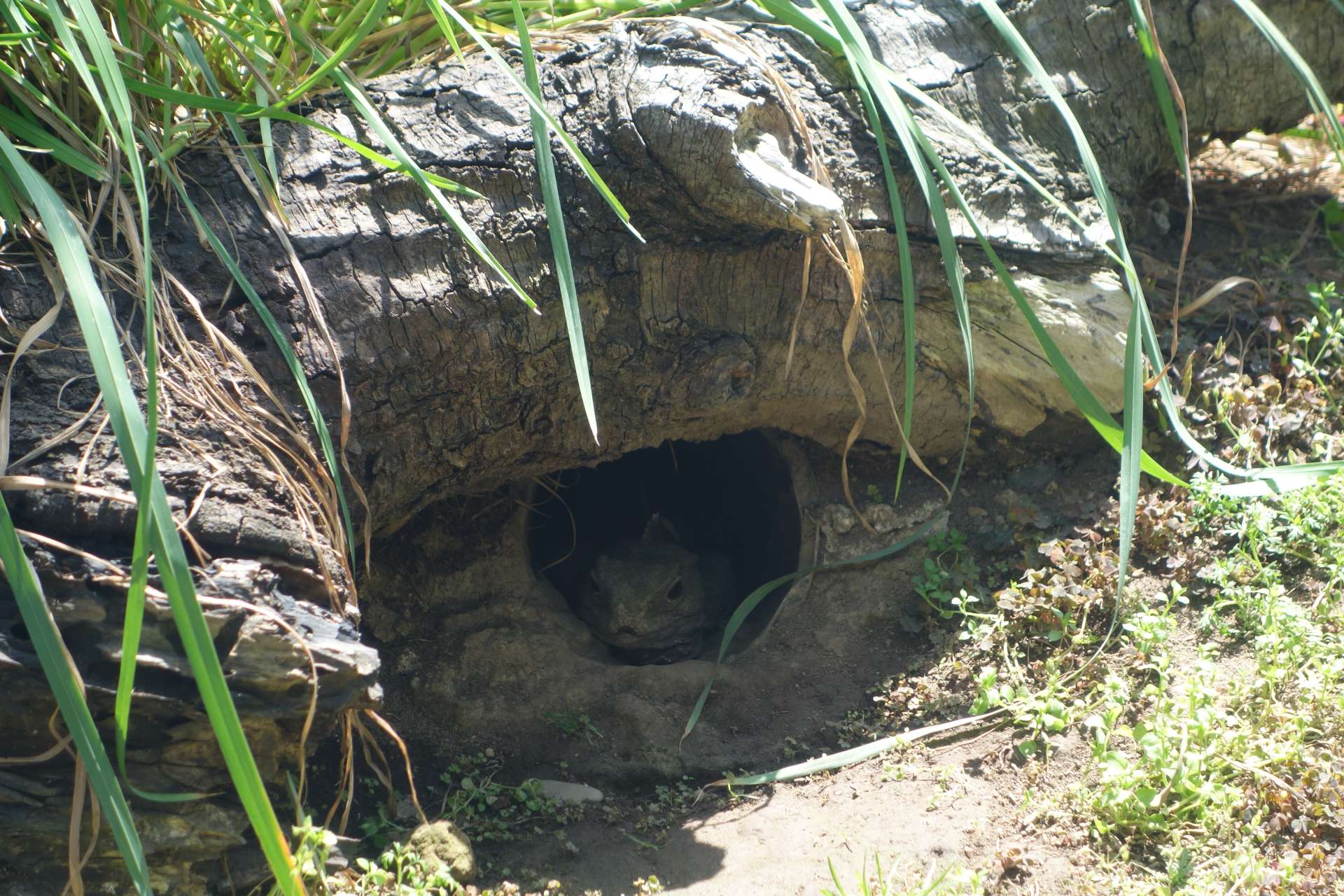
Because we couldn't take good full-body photos, here is a picture of a tuatara from Wikipedia:

Outside the museum, there was a large statue in honor of the tuatara:
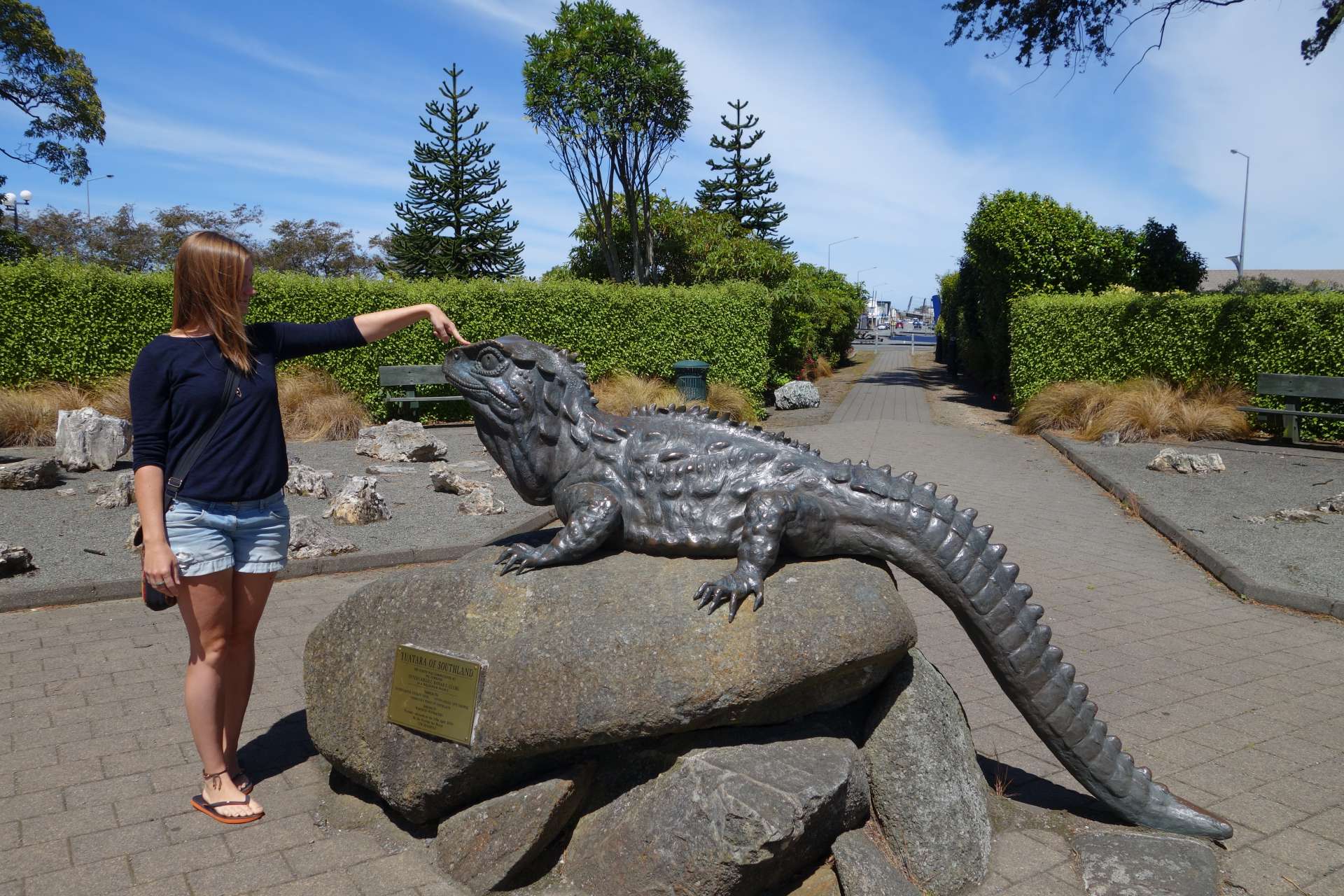
By the way, there are hardly any reptiles on New Zealand. There is also NOT a single species of snake, which makes the country a very unthreatening environment compared to neighboring Australia. The closest thing to a snake here is squashed shoelaces... :P
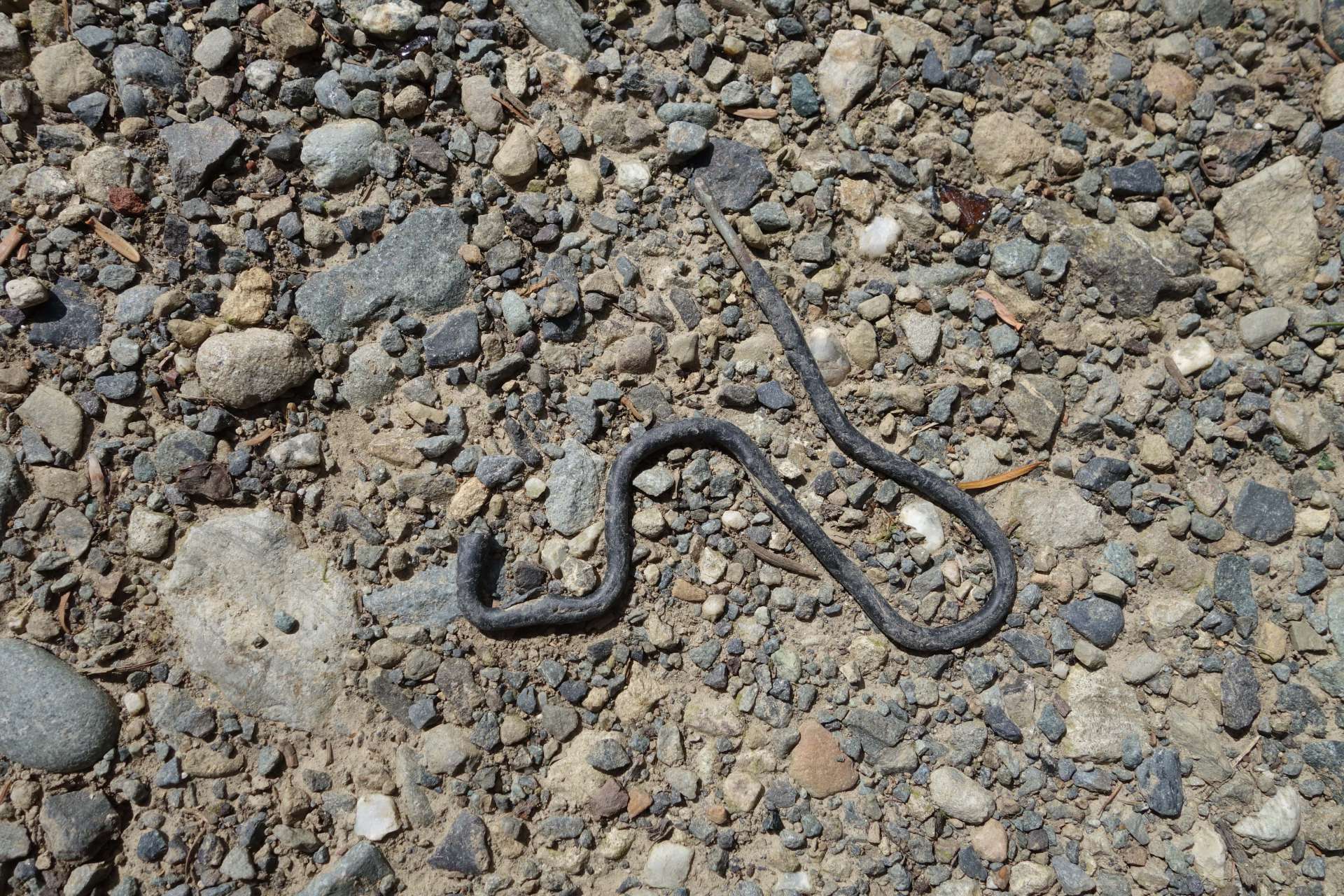
And with that, we have certainly satisfied your thirst for knowledge about tuatara :D
Let's move on to the city center:
The city center of Invercargill is not very big and doesn't have anything special to offer, but we didn't think it was that bad:
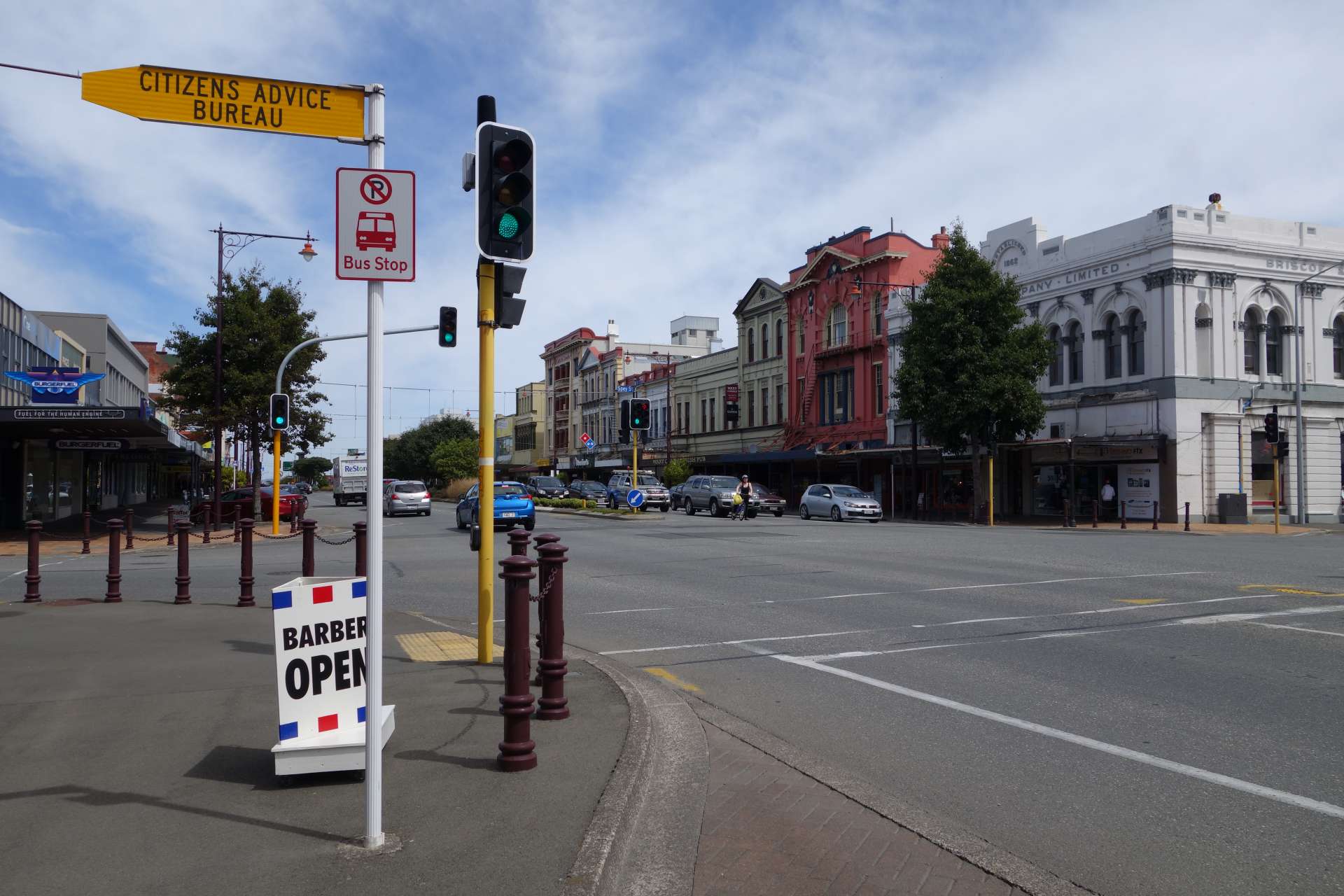
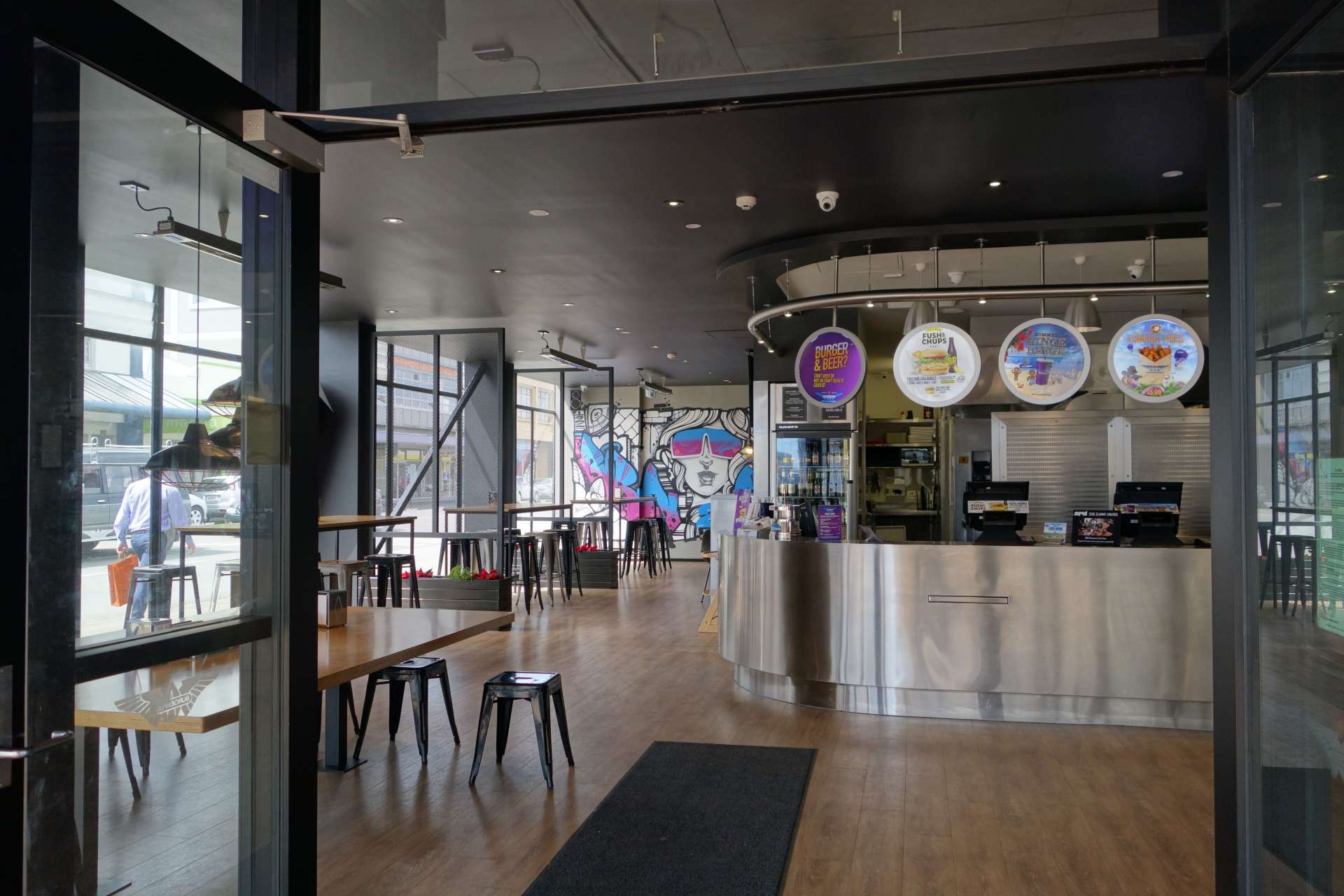
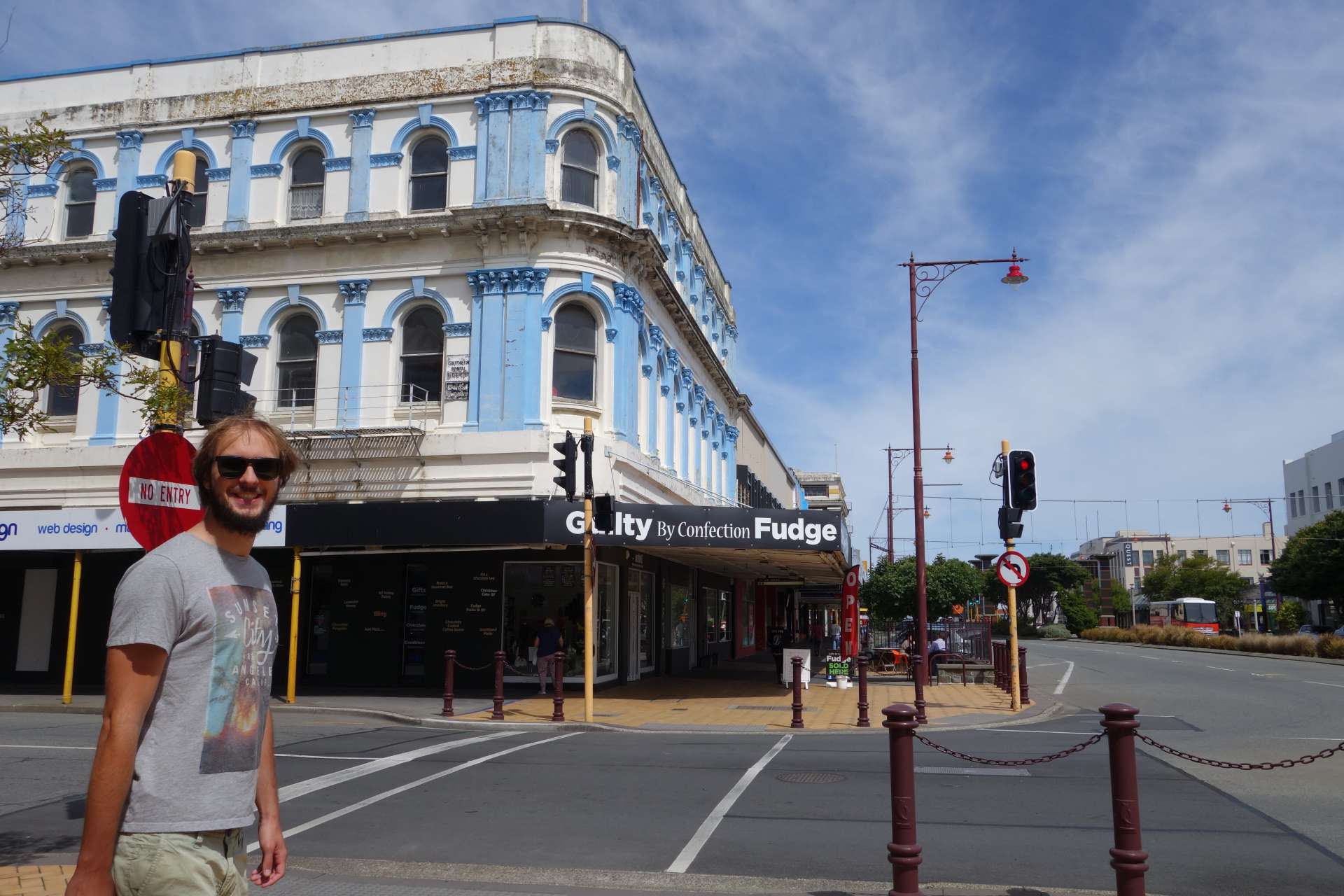
By the way, before we continued our journey, we made a detour to the hairdresser. Anette had her ends trimmed, which didn't make a big difference.
But you can see the change more clearly with Hanne:
Before:
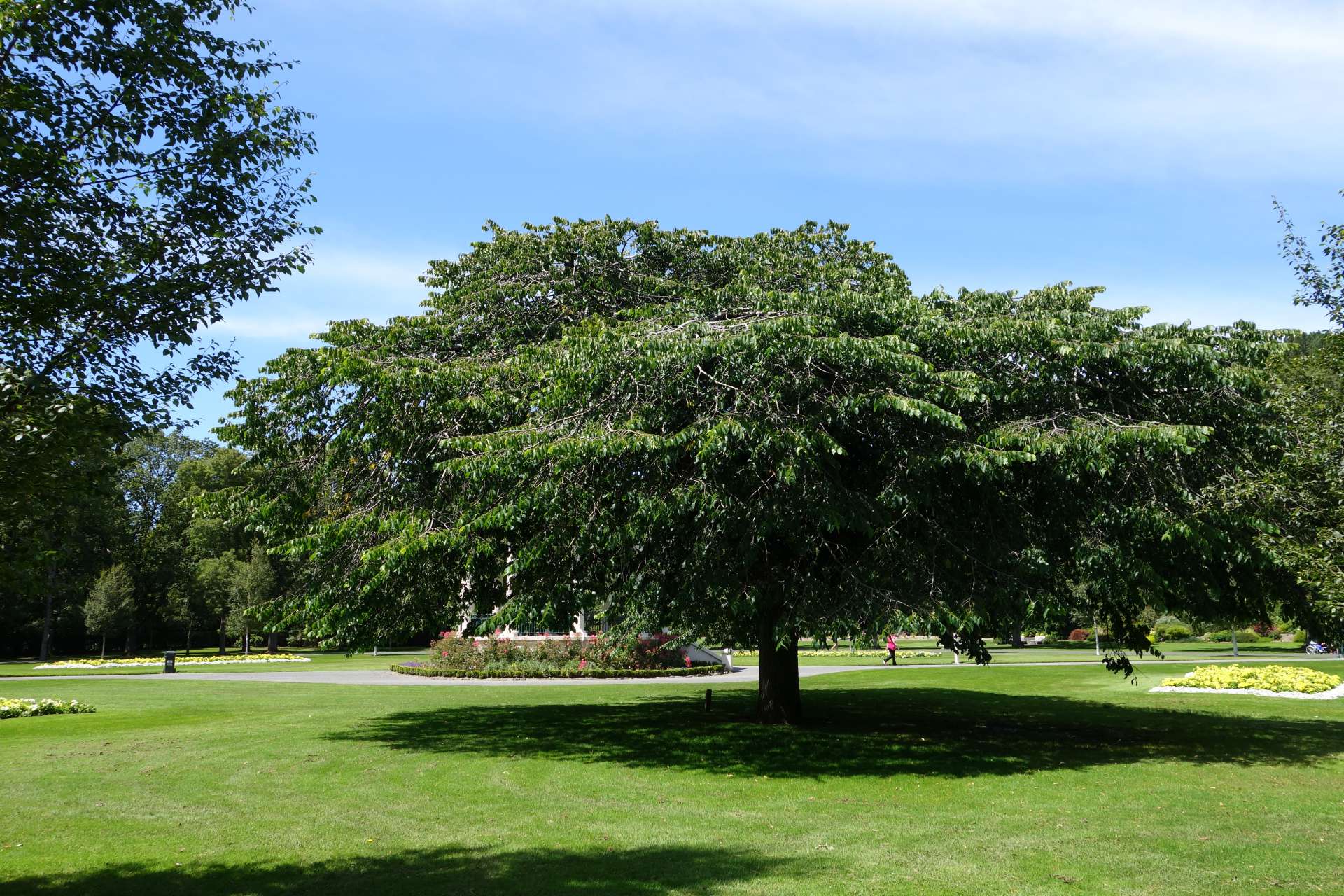
...Hehehe. Mean, right? But we both looked at the tree and said in unison 'That has my/your hairstyle'.
Don't believe it? Okay, then one more time in a different way...
Before:

During:

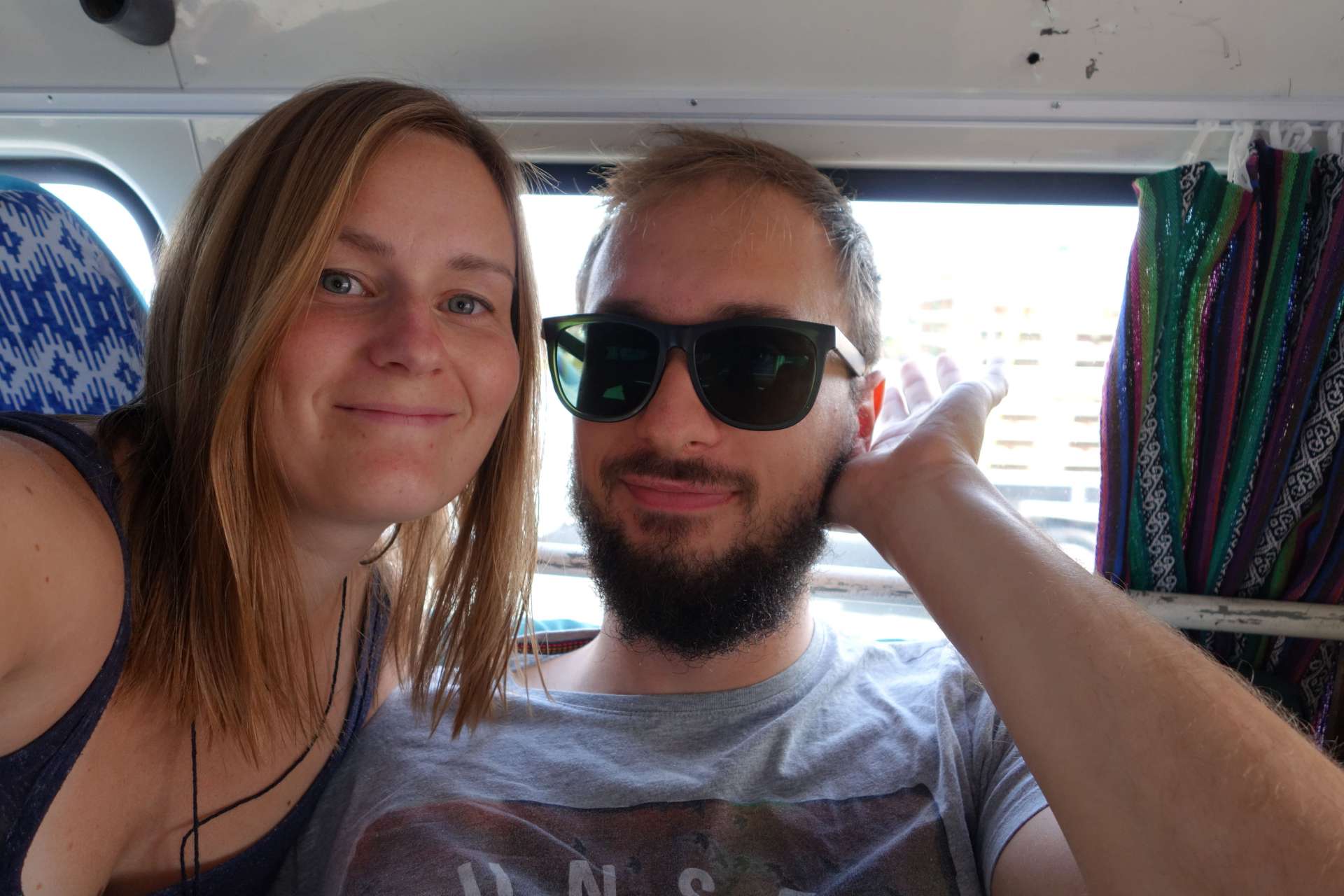
Very stately!!!
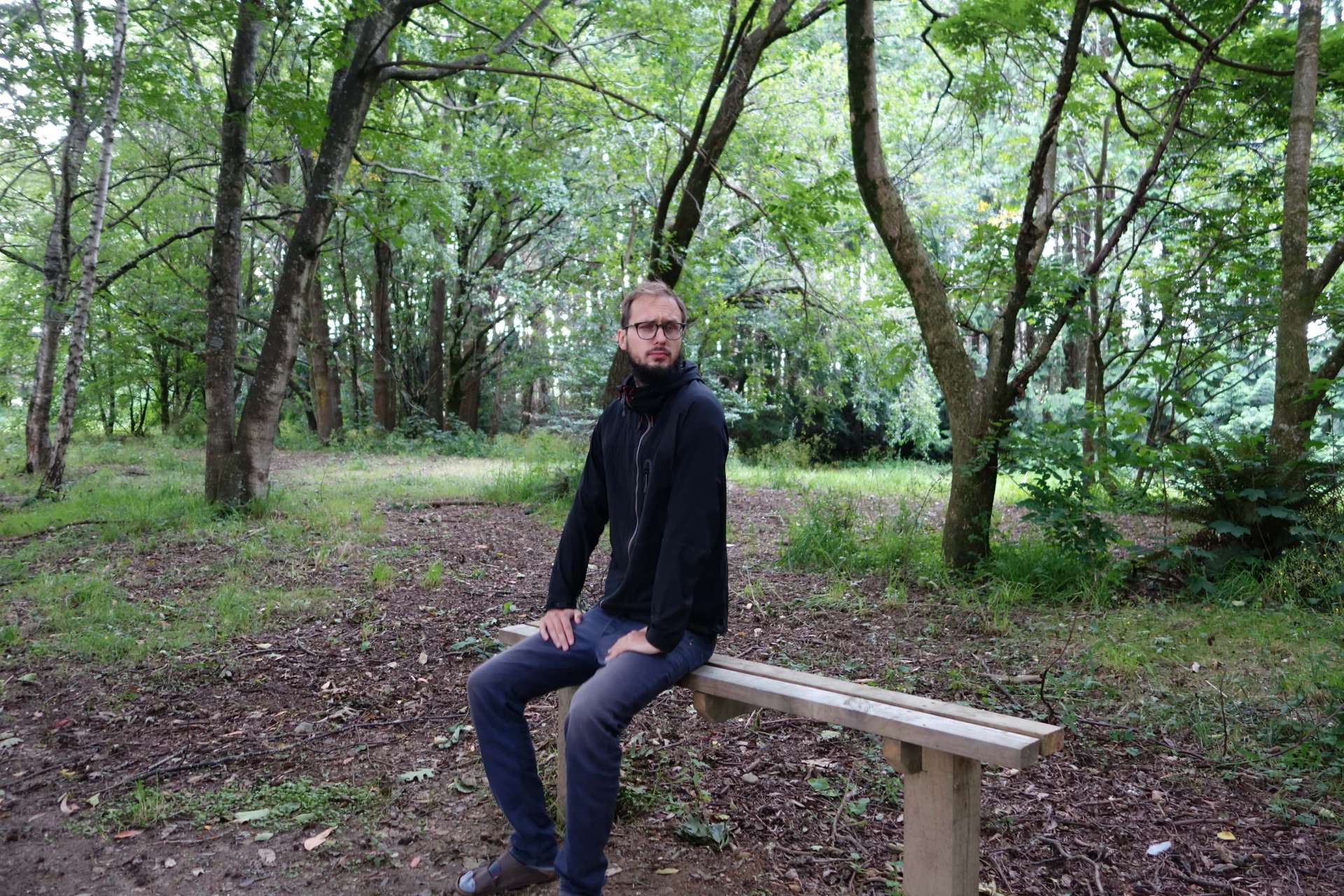
That's it for the south. We will probably come back when the weather is more stable because there is a beautiful 3-day trek nearby. But for now, we are heading north to the beautiful Queenstown.
See you soon! :)
HanNZette
Bhalisela i-Newsletter
Phendula (1)
Elvira
Danke dass wir so euch begleiten können. Sehr schöne Dokumentation :-)
Imibiko yokuvakasha E-New Zealand
